CONTENTS
These 23+ Best Day Hikes in Europe Await Your Adventurous Spirit
We can see why many adventure seekers love to day hike in Europe. Day hiking is short and flexible, making it a perfect activity to squeeze into a busy itinerary. But the range of terrains you can pick from is plenty and no less challenging than any other multi-day hike.
One day, you’re strolling the beautiful cobblestone streets of Germany or France; the next, you’re exploring majestic rock trails with breathtaking landscapes. Or, your itinerary can look like this - dipping in beaches near London before or after conquering the cool green rolling hills full of historical remains.
And it doesn’t stop there! The extensive and interconnected public transport networks around Europe also make day-hiking a breeze in the age-old nation. Just grab a train ticket (your trusted hiking backpacks, too) from whichever city you’re in and go!
Thrilled and excited? Here are the 23+ best day hike locations in Europe where you can travel in 1 day or less.
The Best Day Hikes In Southern Europe
- Cinque Terre, Italy
- Caminito Del Rey, Spain
- Plitvice Lake National Park, Croatia
- Les Houches to Bellevue, France
- Samaria Gorge, Greece
- Corniche de l'Esterel, French Riviera
- Sentier du Littoral, French Riviera
The Best Day Hikes In Northern Europe and Scandinavia
- Pulpit Rock (Preikestolen), Norway
- Julma-Ölkky Hiking Trail, Hossa, Finland
- Sarek National Park, Sweden
- Besseggen Ridge, Norway
- Haukankierros, Finland
The Best Day Hikes in Eastern And Central Europe
- Rila Lakes Circuit, Bulgaria
- Morskie Oko, Tatra National Park, Poland
- Vintgar Gorge to Pokljuka Plateau, Slovenia
- Omu Peak, Bucegi Mountains, Romania
- The Great Balaton Trail, Hungary
- Grossglockner High Alpine Road, Austria
- Eiger Trail, Switzerland
The Best Day Hike In The UK
- Scafell Pike, Lake District
- Ben Navis, Scotland
- Fairy Pools, Scotland
- Snowdon, Wales
- The Jurassic Coast, England
- Cliffs of Moher Coastal Walk, Ireland
The Best Day Hike Locations In Southern Europe
The southern side of Europe, with countries like Italy, Greece, Spain and Portugal, is home to some of the world’s most stunning trails. It’s hot. It’s coastal. And it’s stunning. These characteristics make this part of the nation a good late Spring or Autumn hiking destination.
1. Cinque Terre, Italy
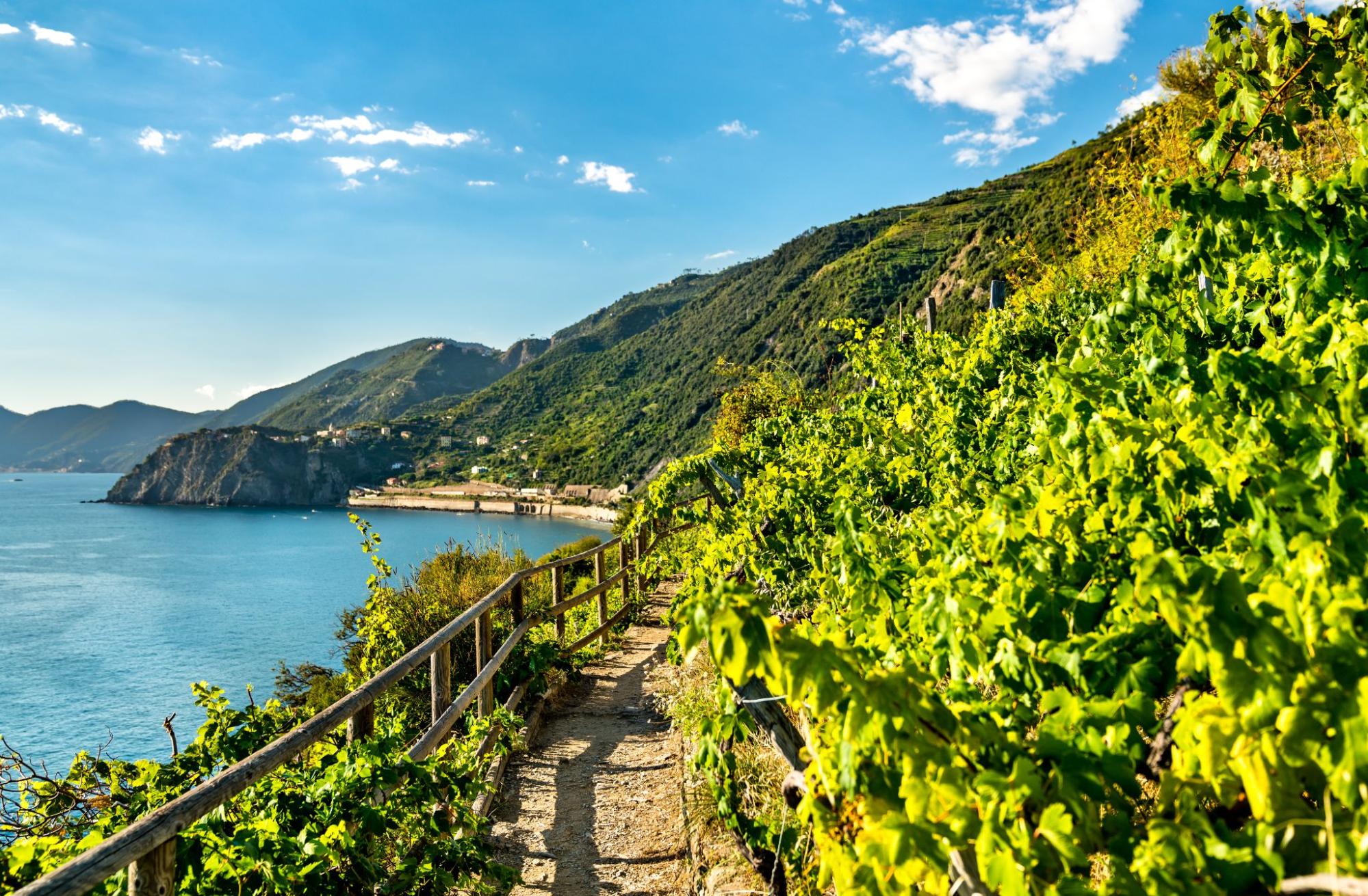
Hike the trail that passes through five vibrant coastal villages. Photo by Leonid Andronov - stock.adobe.com
Starting point: Vernazza or Riomaggiore (depending on your preference)
Difficulty: easy to moderate (with some steep ascending or descending parts)
Length: 7.5 kilometres
Spanning through not one but five enchanting coastal villages, this trail is going to give your nature-loving eyes a feast of rugged cliffs, crystal waters, and terraced vineyards. The trail is well-maintained with clear navigation and rest stops.
2. Caminito Del Rey, Spain
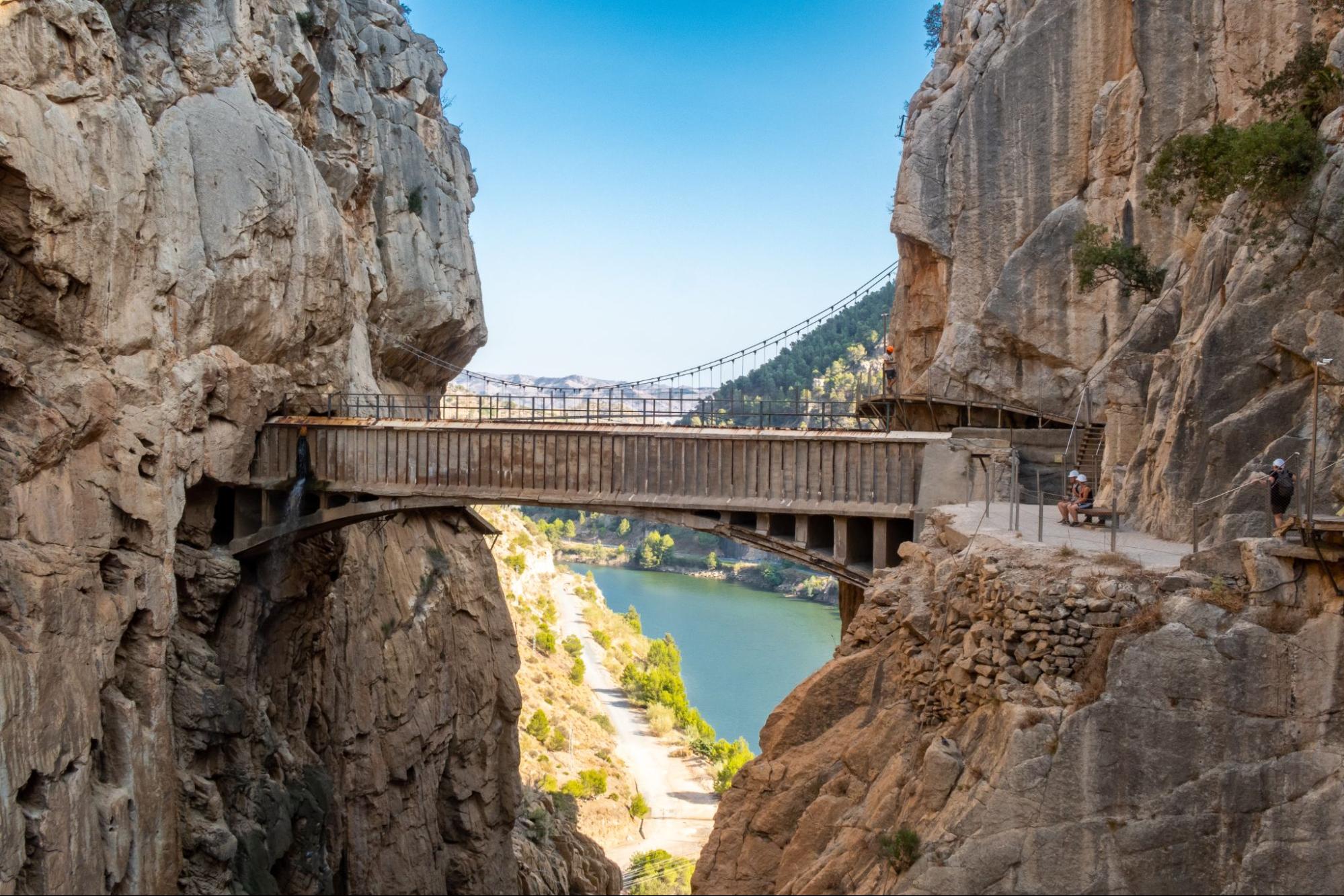
Caminito Del Rey is a height lover’s dream. Photo by Cleop6atra - stock.adobe.com
Starting point: Ardales (one-way route)
Difficulty: moderate for most fit hikers (with some uneven surfaces)
Length: 7.7 kilometres
This world-famous trail takes you on a mesmerising journey along narrow paths built into the walls of the El Chorro gorge. Though steep, this trail has guardrails and a sturdy boardwalk, so you can safely enjoy the breathtaking views of the rock formations of the iconic gorge.
3. Plitvice Lake National Park, Croatia
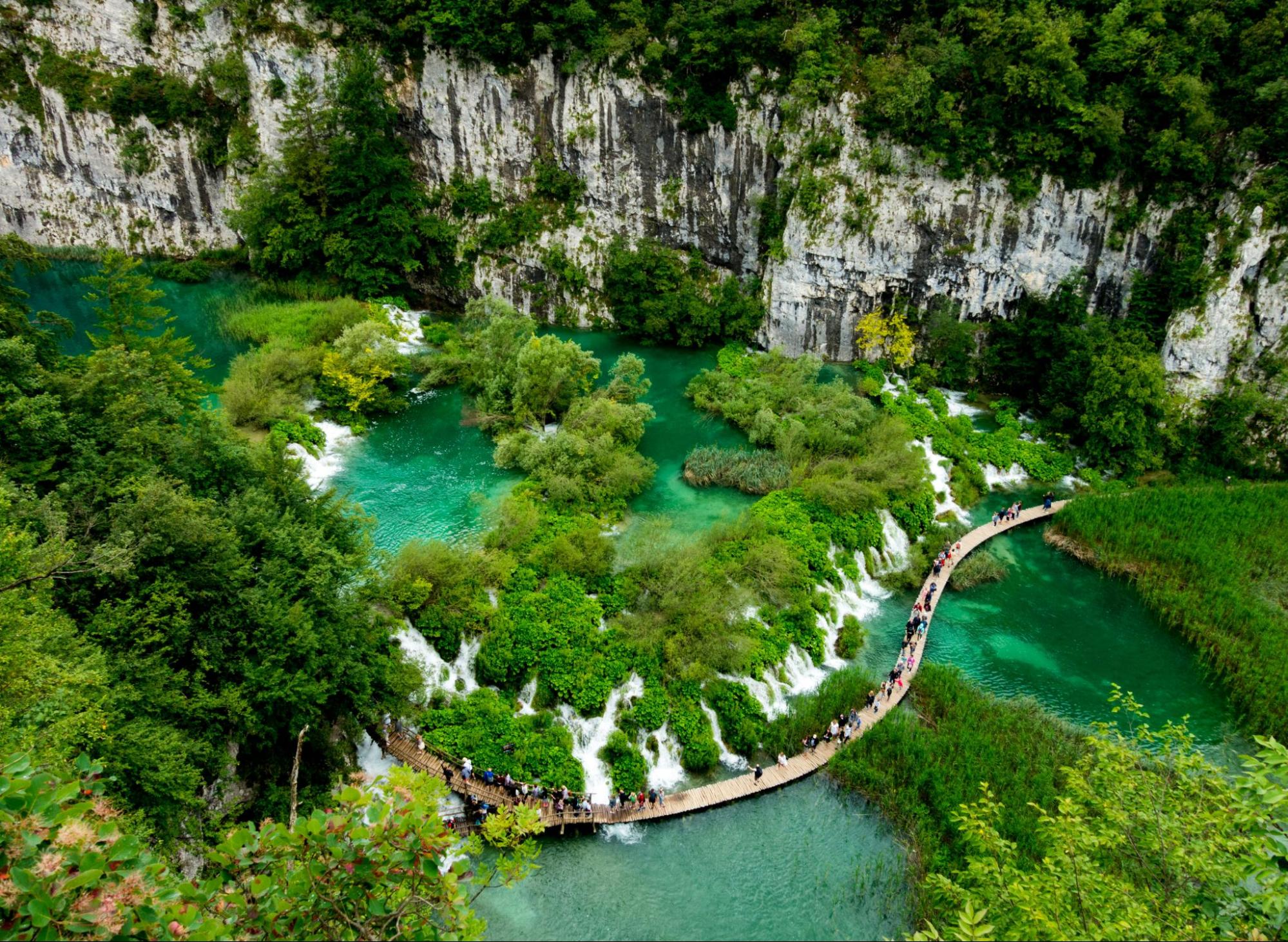
Ready to be amazed by the emerald lakes of Plitvice? Photo by Mike Swigunski on Unsplash.
Starting point: Entrance 1 (north)
Difficulty: moderate
Length: 18 kilometres
See your dream nature trip come to life on this beautiful UNESCO World Heritage trail. With its stunning waterfalls, emerald lakes, and lush forest, this intricate trail offers a memorable adventure. The trail is well-marked and has panoramic viewpoints.
4. Les Houches to Bellevue, France
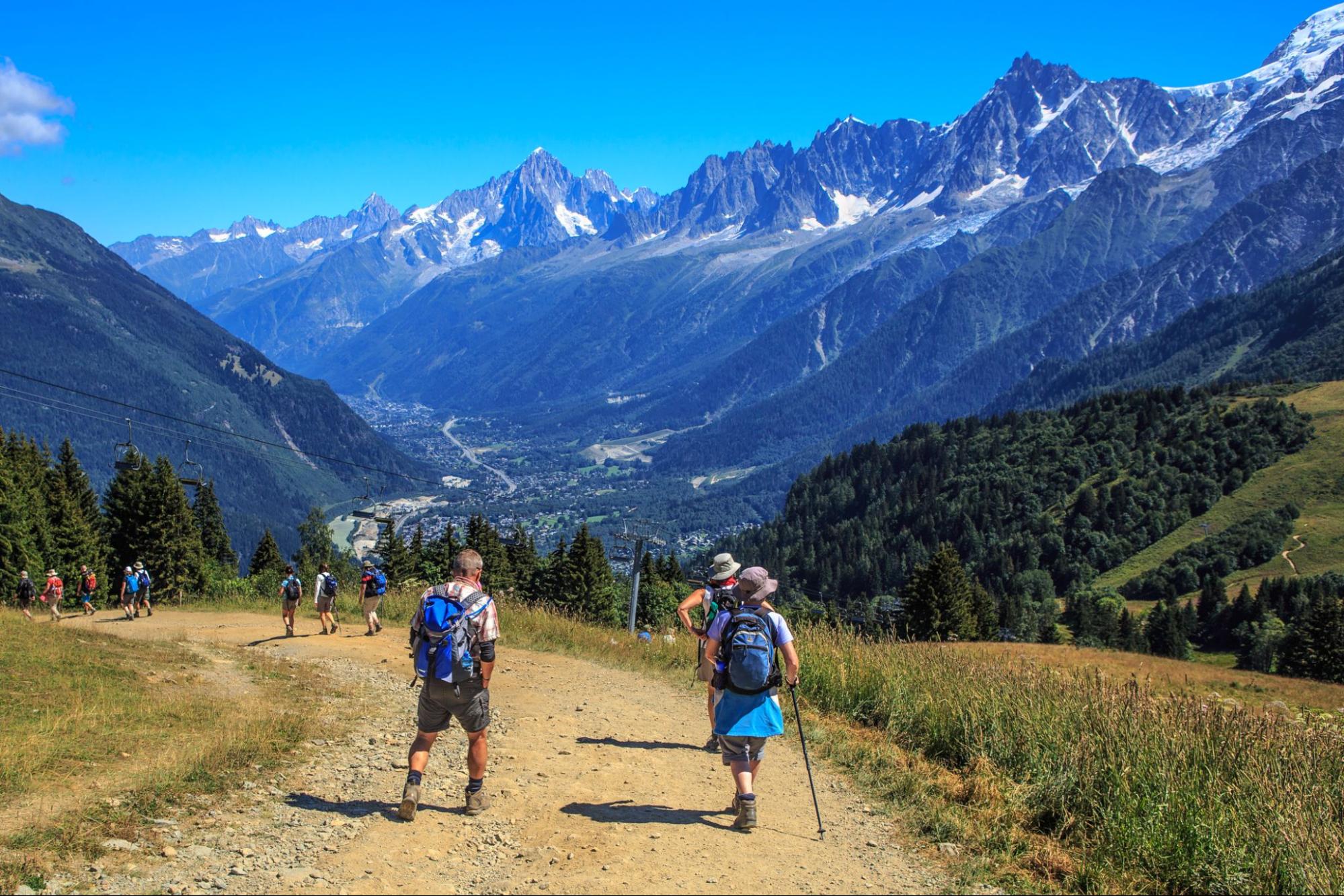
Enjoy the mighty Mont Blanc from a distance on this trail. Murray Foubister, CC BY-SA 2.0, via Wikimedia Commons. Image resized
Starting point: Les Houches village
Difficulty: moderate to hard (with some uphill sections and uneven surfaces)
Length: 7 kilometres
This trail is famous because it can give you a taste of the French Alps without having to actually walk the extremely challenging multi-day Mont Blanc hike. Passing through mellow meadows and forests with alpine flora, you can marvel at Mont Blanc and its surrounding peaks from afar.
5. Samaria Gorge, Greece
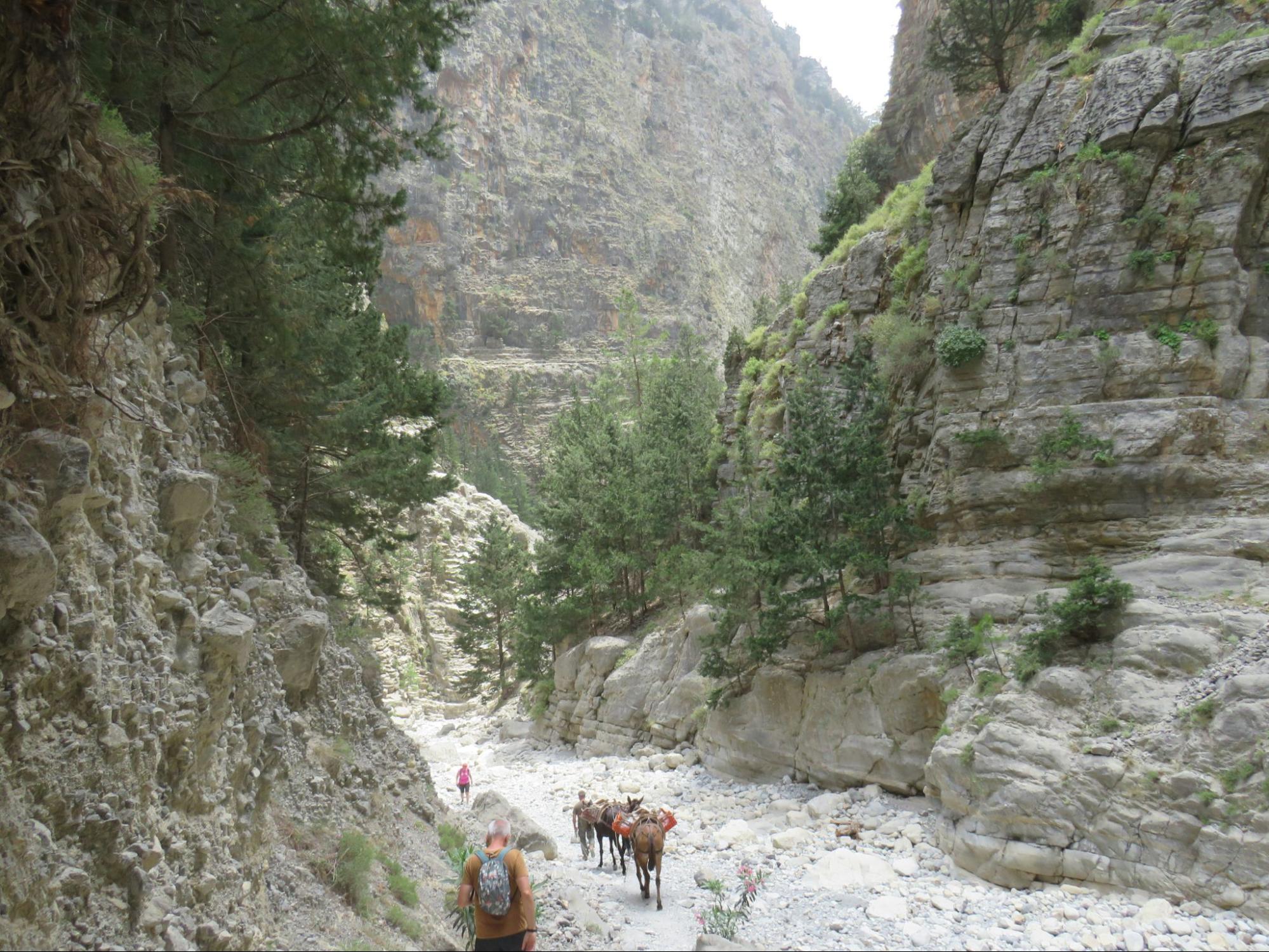
Take your time hiking on the Samaria Gorge trail. Photo by Adrien Antal on Unsplash.
Starting point: Xyloskalo
Difficulty: hard (not recommended as a 1-day hike for beginners)
Length: 16 kilometres
The allure of this challenging trail comes from its natural landscape - tranquil springs, bountiful fauna and flora, unique geological formations, and view of the White Mountains. Along the trail, you can also encounter historical remains of ancient settlements, like churches and houses. It’s definitely not a trail to be rushed.
6. Corniche de l'Esterel, French Riviera
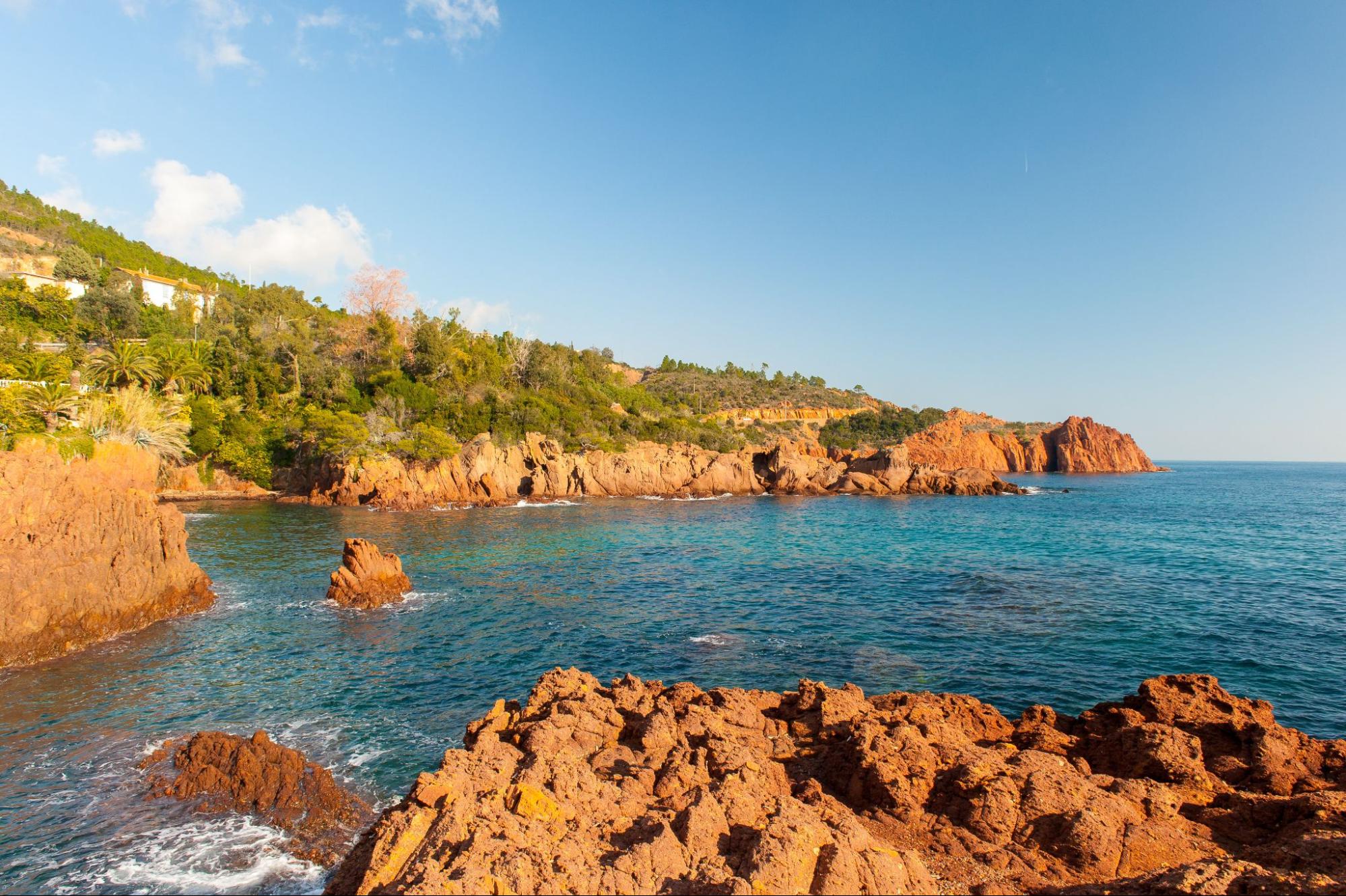
The stunning stretches of red rocks disappear into the endless blue. Photo by OkFoto.it - stock.adobe.com
Starting point: Mandelieu-la-Napoule
Difficulty: moderate to hard
Length: 13 kilometres
Follow the old Corniche road and be engulfed by the beauty of Esterel Massif, the volcanic mountain overlooking the Mediterranean Sea. This trail showcases the beautiful natural contrast between the red rock of Esterel Massif and the azure blue waters. Complimenting that picture is the green of the trail’s palm trees and cacti.
7. Sentier du Littoral, French Riviera
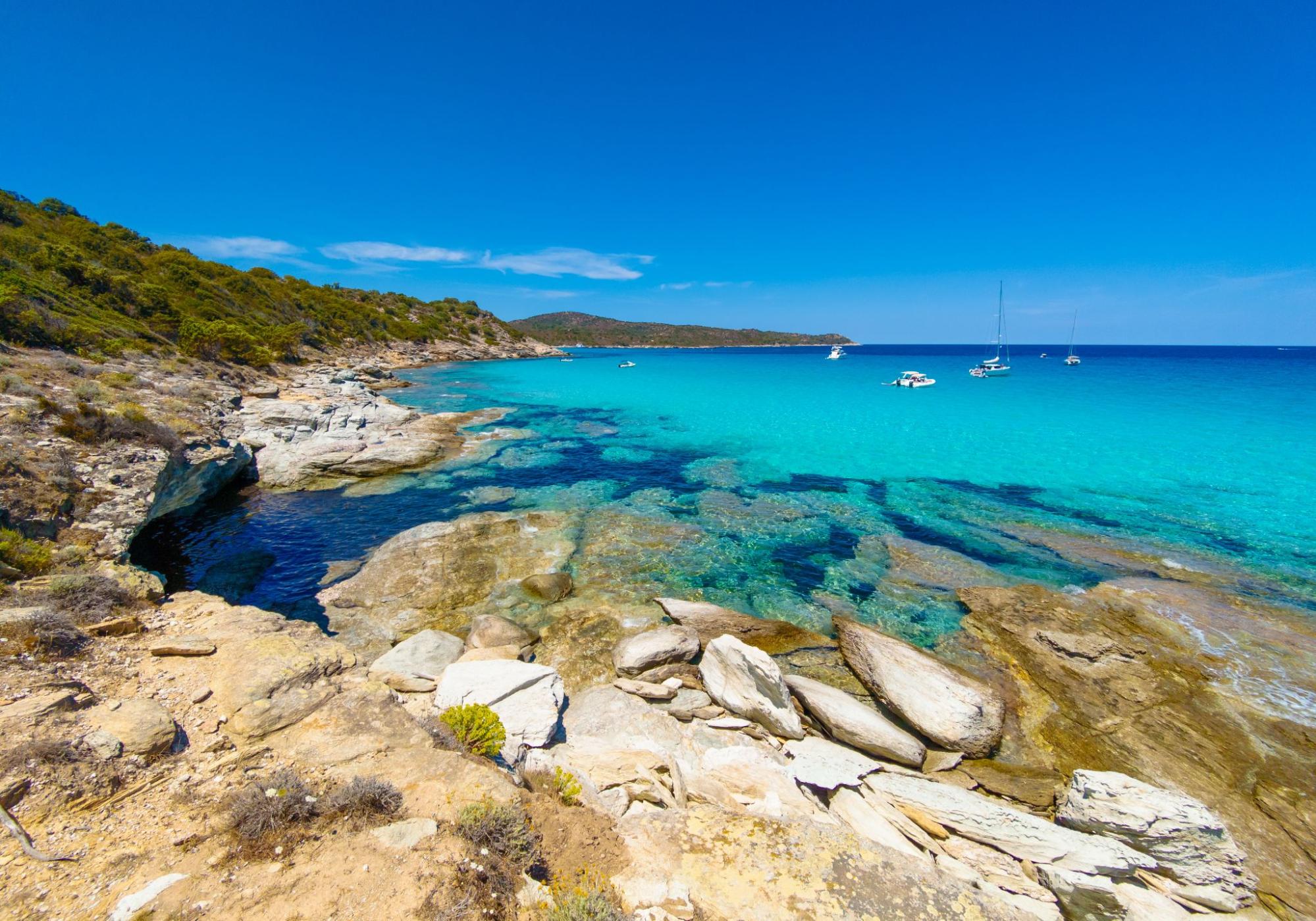
A secluded getaway in the Sentier du Littoral trail. Photo by ValerioMei on Adobe Stock.
Starting point: Cassis, Bandol or La Ciotat coastal town
Difficulty: easy to moderate depending on the length
Length: 25 kilometres
This renowned trail is one of the best ways to explore the natural beauty of the French Riviera. There are plenty of hidden coves and secluded beaches to visit, one of which is the Calanque d'En-Vau, with sheer limestone cliffs and clear water. Twenty-two kilometres in, and you’ll see Monaco in the distance. You can either explore the magnificent streets of Monaco or hike uphill, where you’ll be able to see the famous Casino de Monte-Carlo.
The Best Day Hike Spots In Northern Europe and Scandinavia
The north of Europe experiences a temperate climate. It’s a magnet for enthusiastic walkers who love to hike in cooler weather. The region is also known for its fantastic fjords, vast forests and scenic mountains. The summer months (typically from May to September) are the best time to hike as daylight hours are longer and wildlife is more active.
8. Pulpit Rock (Preikestolen), Norway
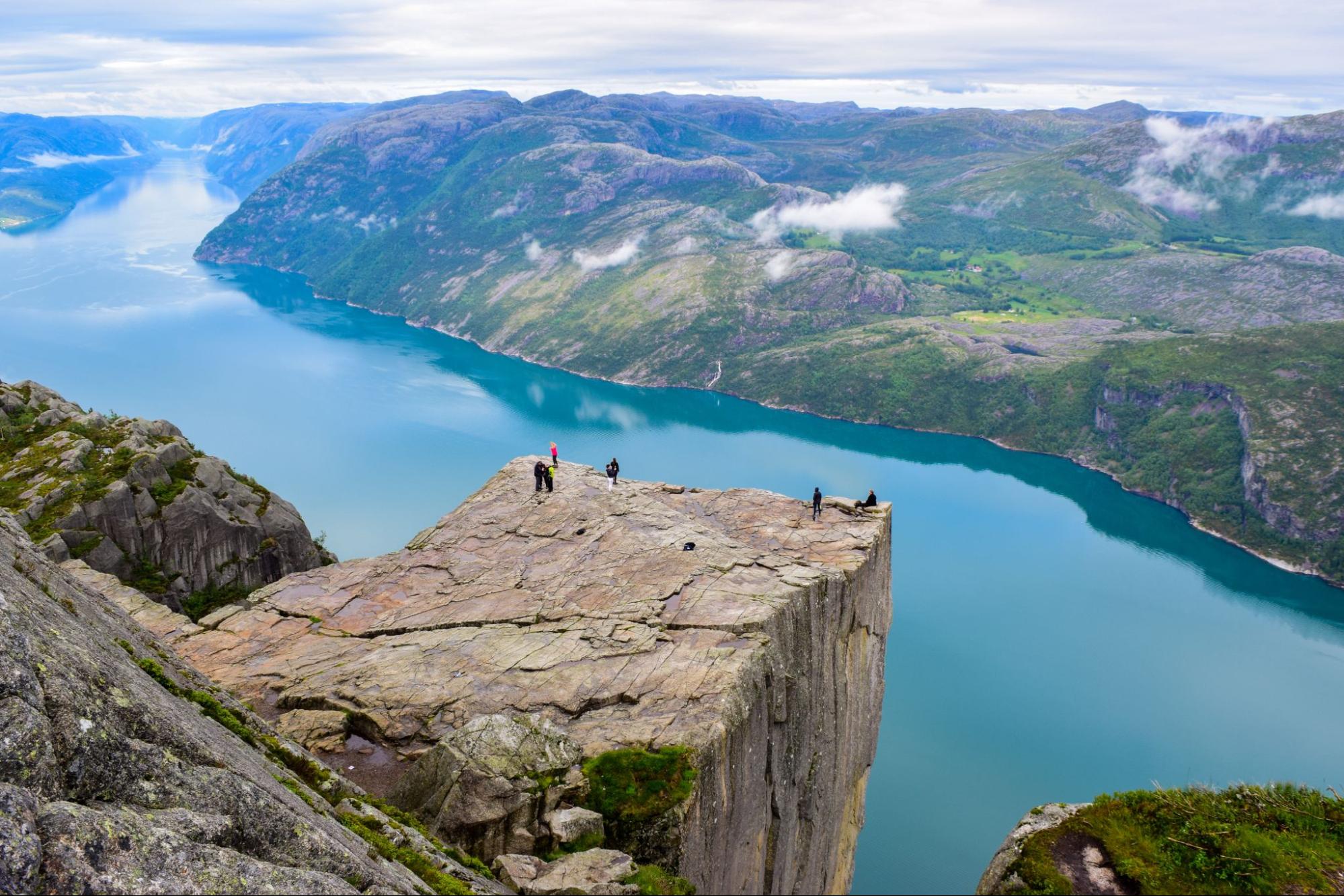
The view atop Pulpit Rock is nothing short of stunning. Photo by jana_janina - stock.adobe.com
Starting point: From Stavanger, take a bus ride to Preikestolen Fjellstue
Difficulty: Easy to moderate (accessible to a wide range of walkers, but might be a bit challenging for first-timers)
Length: 3.8 kilometres
Short but sweet is how we’d described this trail. This iconic path might look challenging at first glance, with its dramatic overlook, but once you’re walking on it, you will soon find it rewarding and uniquely tranquil. From the view of the Lysefjord below to lush forests, this rocky terrain makes for an unforgettable walk.
9. Julma-Ölkky Hiking Trail, Hossa, Finland
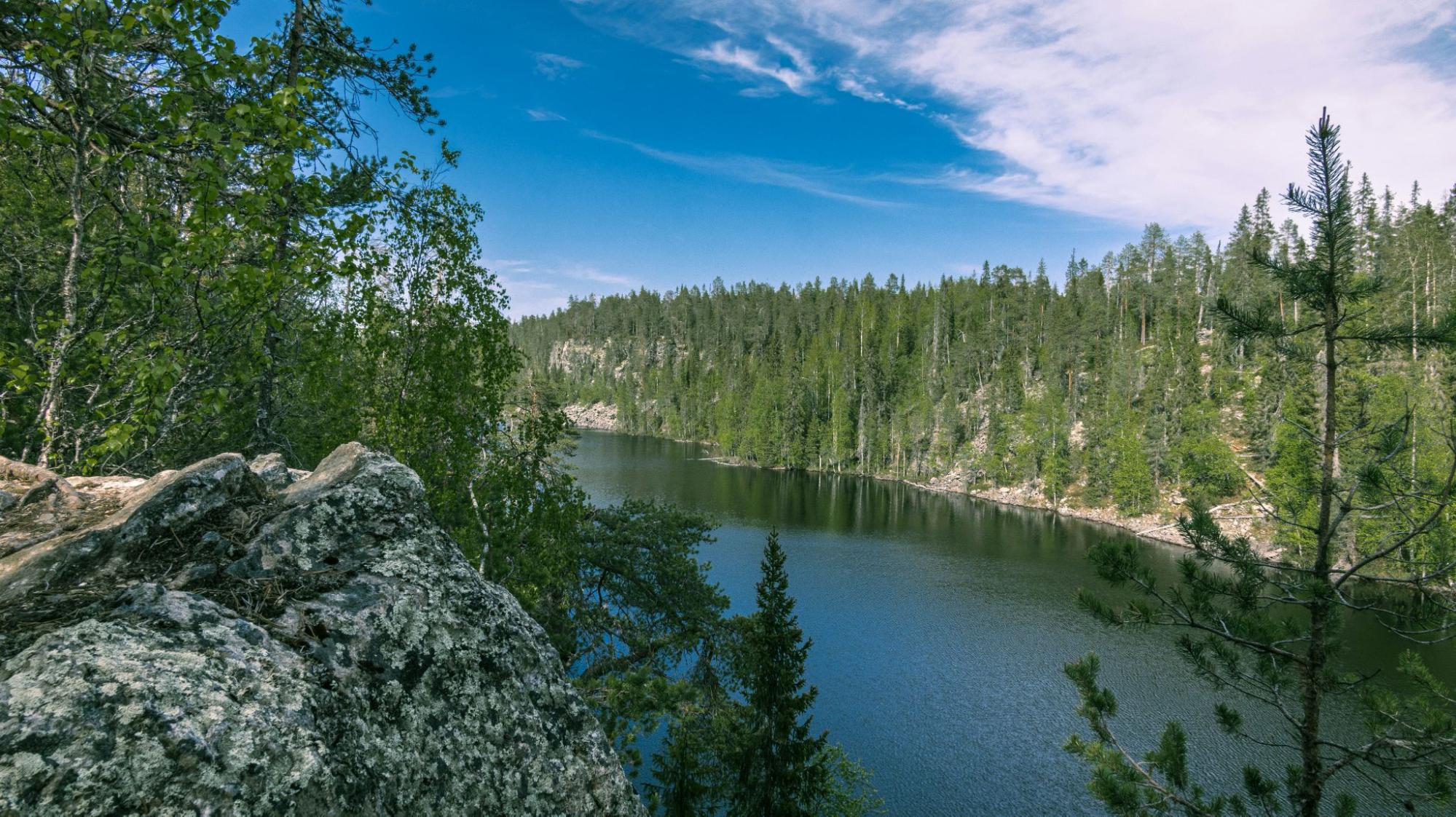
The tranquil scenery of Julma-Ölkky is hard to forget. Photo by Juho Luomala on Unsplash.
Starting point: Julma-Ölkky parking area
Difficulty: moderate
Length: 11 kilometres
If you’re a fan of secluded and tranquil hiking trails, this one should definitely be the new item on your day hiking checklist. The highlight of this rugged landscape is the Julma-Ölkky Canyon, the deepest one in Finland. Apart from that, you can also encounter magnificent wildlife creatures such as moose, reindeer and plenty of bird species. In the winter, you can ski or go snowshoeing in the area.
10. Sarek National Park, Sweden
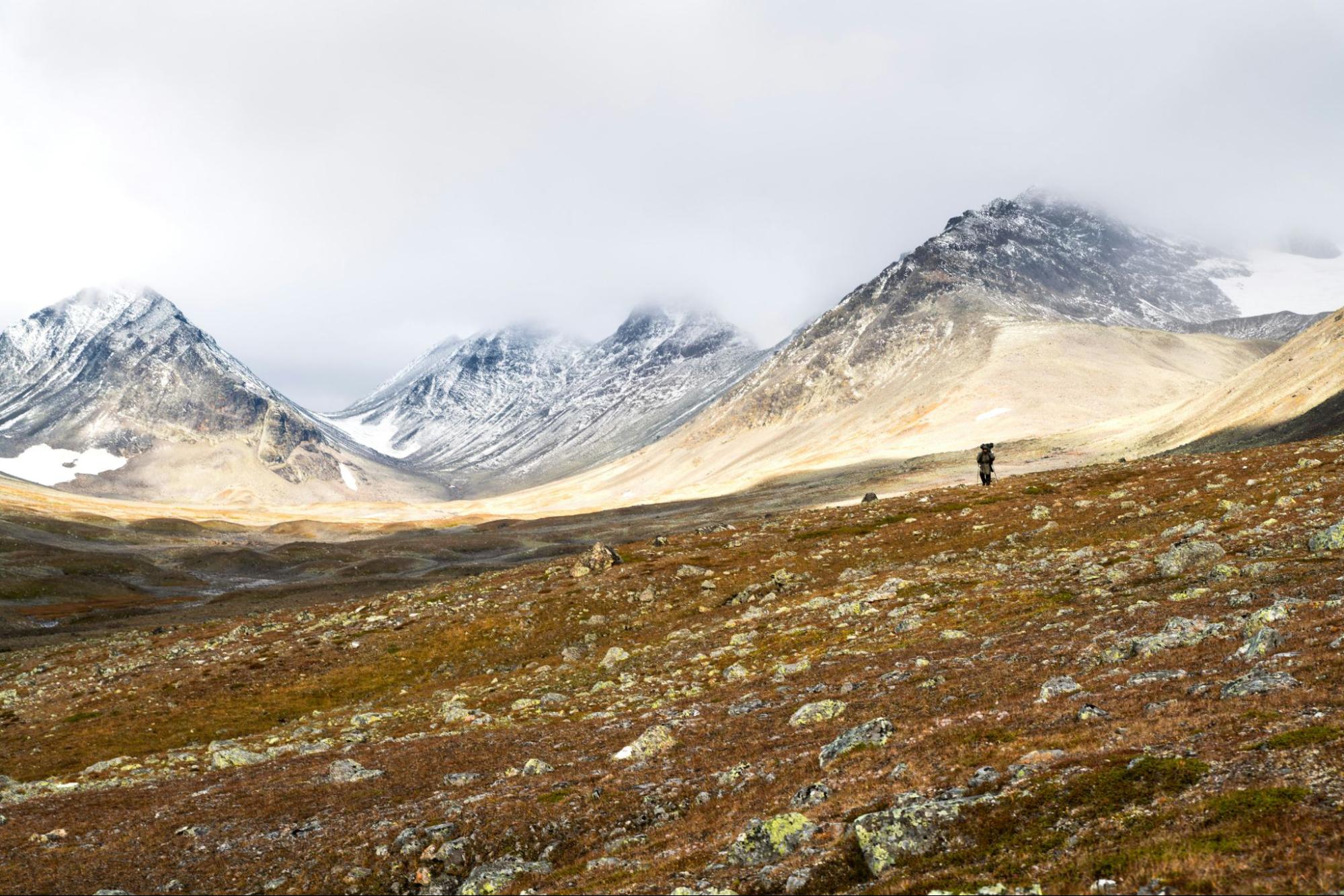
The steep hills of Sarek National Park are for adventurous souls. Photo by Ville Palmu on Unsplash
Starting point: Rapadalen Valley
Difficulty: moderate to hard
Length: 15 kilometres
Its rugged terrain and isolated location are not for the faint of hearts. This trail is the best choice for daring walkers who love an adrenaline-pumping challenge that comes with mesmerising rewards. The forests are dense; hills are steep, and neighbouring peaks are looming threateningly in the background.
11. Besseggen Ridge, Norway
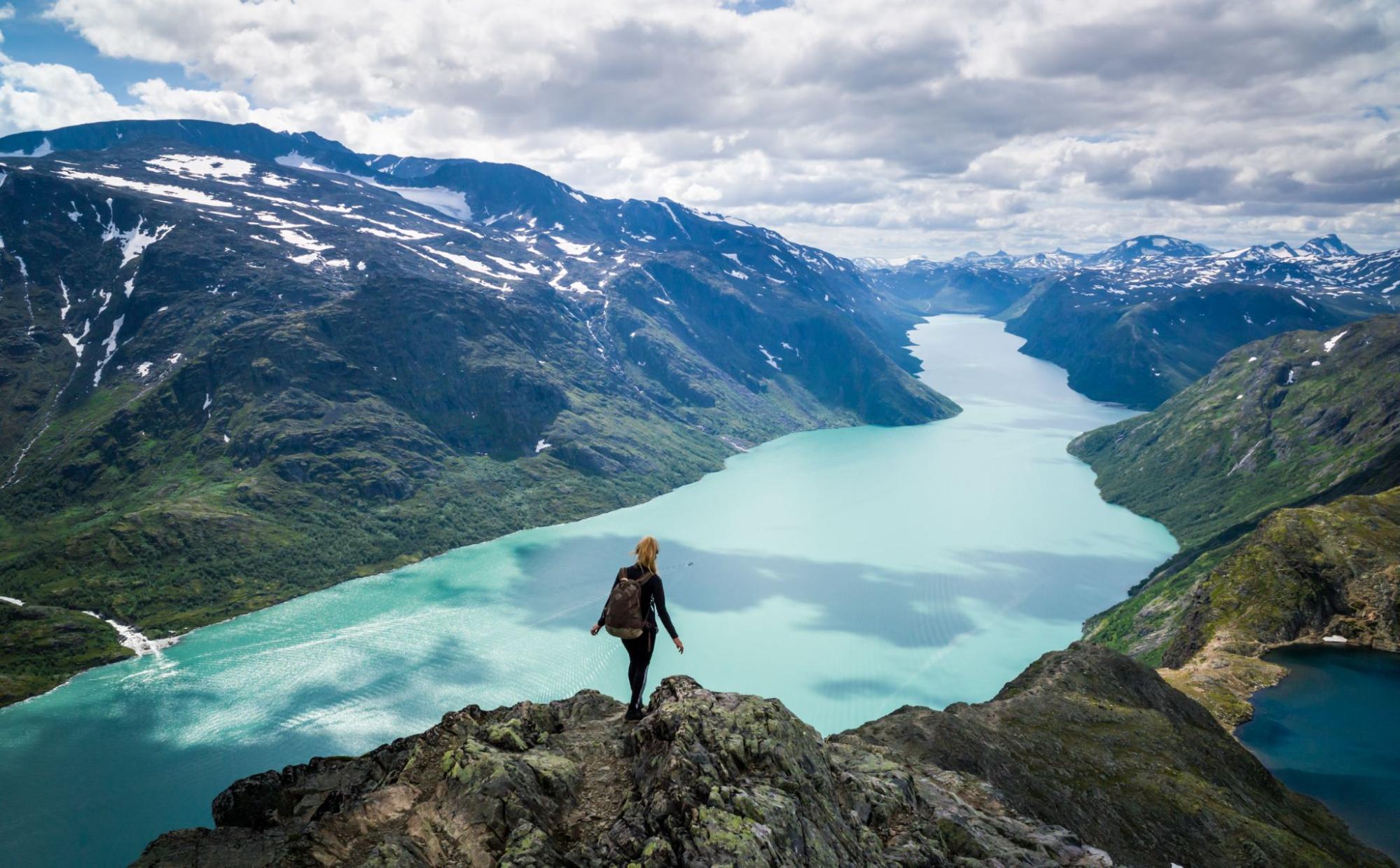
Nature’s masterpiece in front of your eyes on Besseggen Ridge. Photo by ajwk - stock.adobe.com
Starting point: Gjendesheim
Difficulty: Hard (hiking with children is not recommended)
Length: 14 kilometres
This trail is perfectly nestled between two lakes, the green Gjende and the blue Bessvatnet. It’s one of Norway’s most beloved paths, so you can expect to meet a lot of like-minded globetrotters along the way. Take the ferry ride from Gjende to Memurubu, then ascend the ridge from there.
12. Haukankierros, Finland
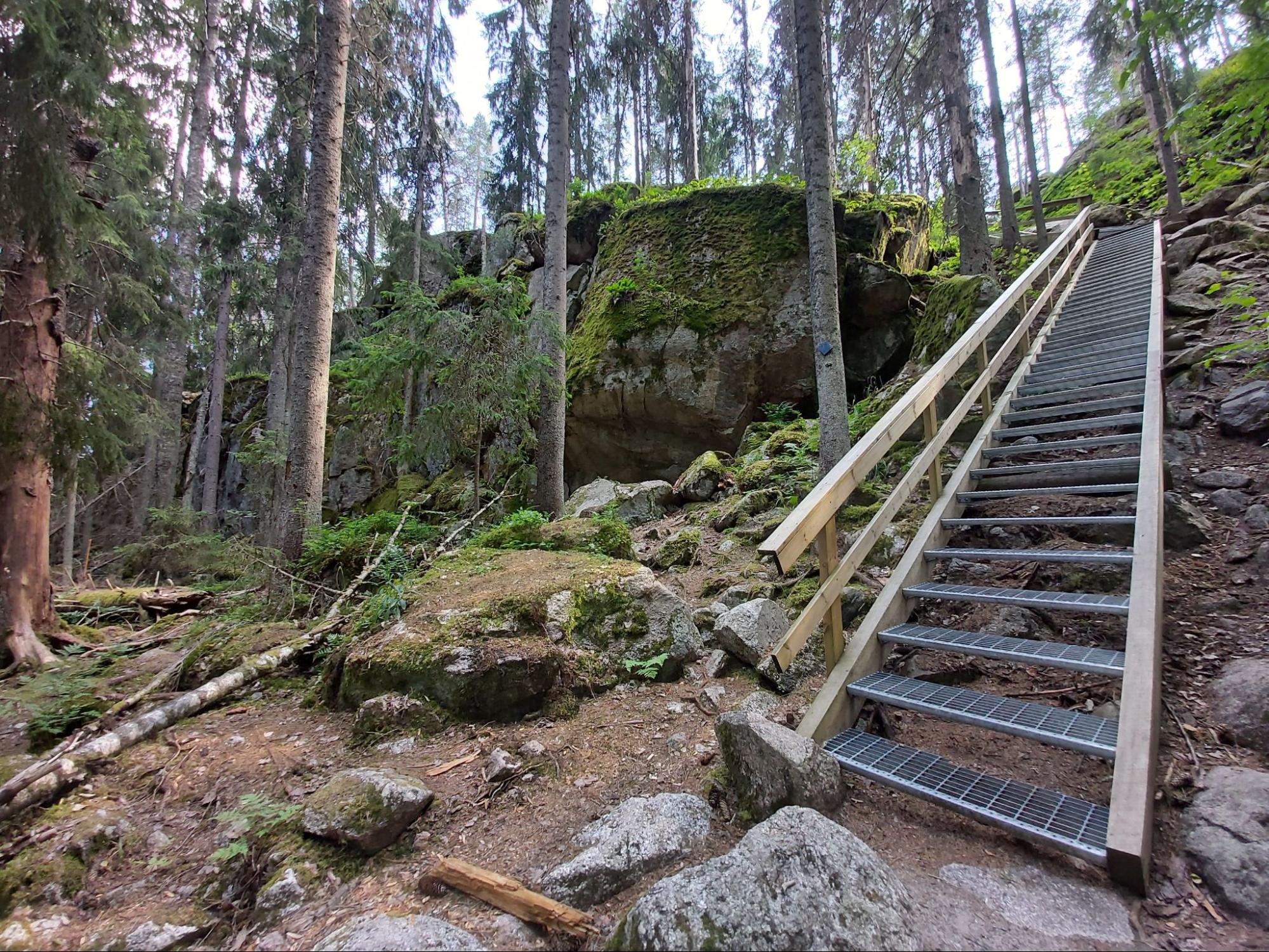
Lose yourself in the beauty of Finland’s finest natural beauty. Ximonic (Simo Räsänen), CC BY-SA 3.0, via Wikimedia Commons. Image resized
Starting point: Haukkalammen parking area
Difficulty: Moderate
Length: 3.9 kilometres
Located in the heart of Nuuksio National Park, this scenic trail leads you through a breathtaking area filled with sparkling lakes and granite cliffs. You can take breaks, unbuckle your gear and enjoy your lunch in the serene wilderness of Finland. There are also plenty of other activities to do around Nuuksio to fill your itinerary, such as camping and visiting an exhibition.
The Best Day Hike Trips in Eastern And Central Europe
Eastern Europe boasts a diverse range of landscapes, such as glacial lakes, alpine meadows and impressive peaks. Trails also take you through historical monuments that reveal layers and layers of mesmerising bygone eras.
Compared to other popular destinations in Central or Southern Europe, Eastern Europe is less crowded during tourist season and more affordable. The ideal time to hike in Eastern Europe is from June to September, when the days are warmer and longer.
13. Rila Lakes Circuit, Bulgaria
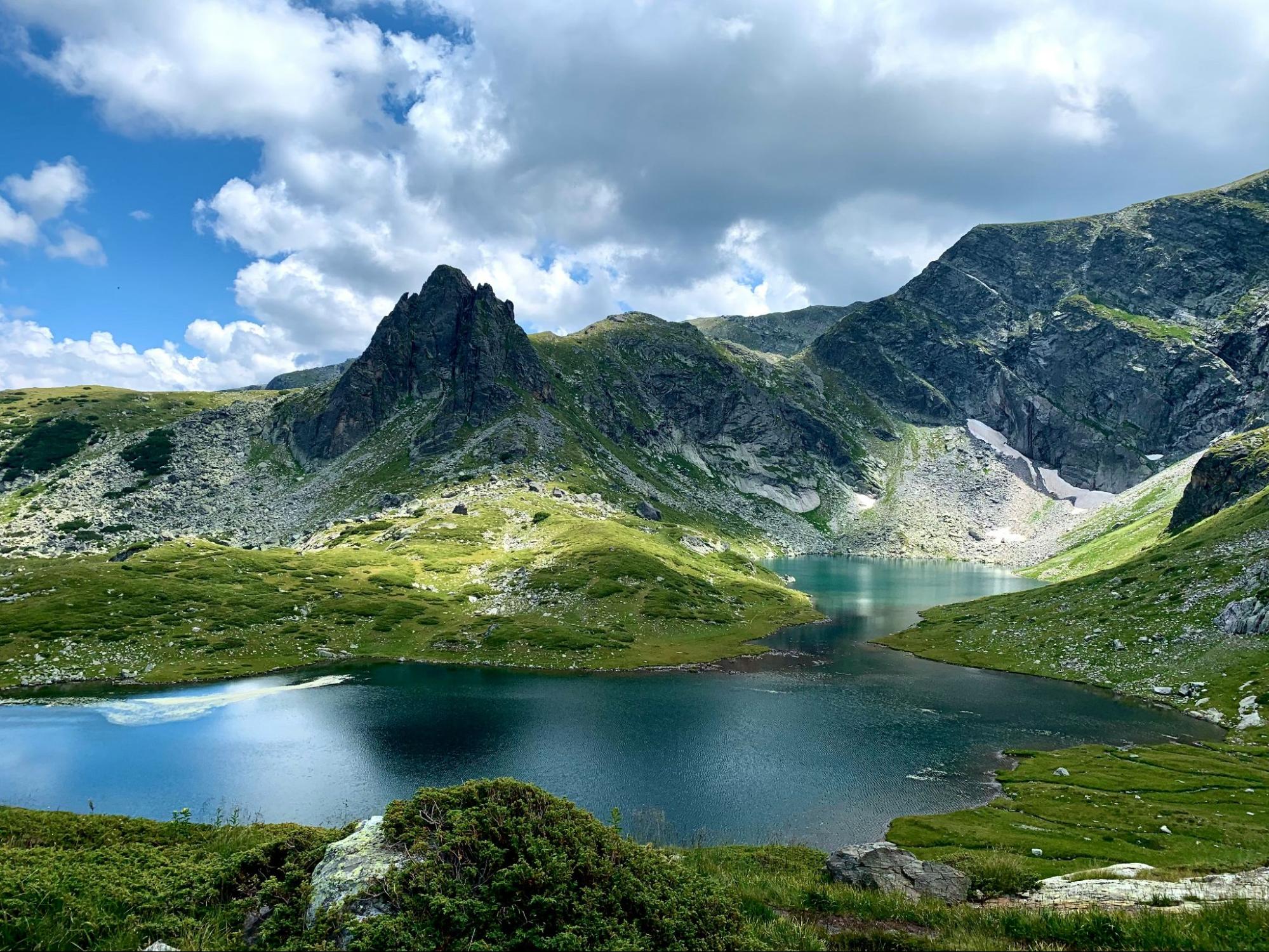
Every step on this circuit reveals a new natural gem. Photo by George Ivanov on Unsplash
Starting point: Panichishte resort
Difficulty: moderate to hard (due to some steep sections)
Length: 15 kilometres
Start early in the morning, so you can have extra time walking through a series of 7 glacial lakes and dense forests. As you go higher up, the scenery gets more dramatic. You can feel your breath taken away as you reach the highest point, the Urdini Lakes Hut. There are plenty of rest stops with benches and tables perfect for a picnic lunch. You can also take a boat ride. But be careful, the water is quite cold in the summer.
14. Morskie Oko, Tatra National Park, Poland
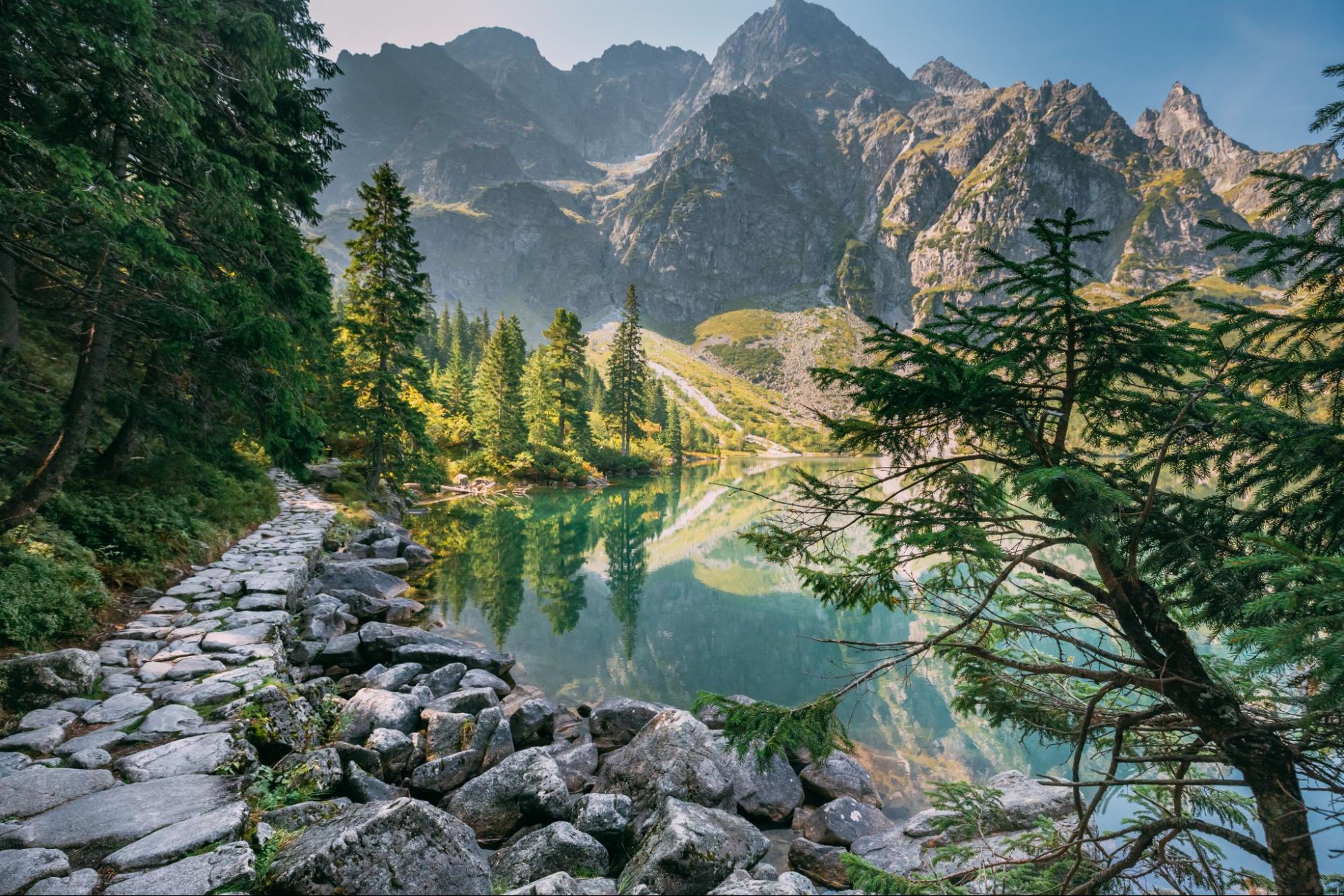
A breathtaking escape into Poland's wilderness. Photo by Grigory Bruev - stock.adobe.com
Starting point: Palenica Białczańska village
Difficulty: easy to moderate
Length: 15 kilometres
Located in Tatra National Park, this trail is one of the many beautiful 1-day hiking trails you can experience in the area. Even though there are some steep sections, Morskie Oko is suitable for a wide range of walkers, from beginner to expert. The highlight of the trail is the stunning Morskie Oko Lake with crystal-clear water. There are some cute restaurants and cafes near the lake to refresh after a long journey.
15. Vintgar Gorge to Pokljuka Plateau, Slovenia
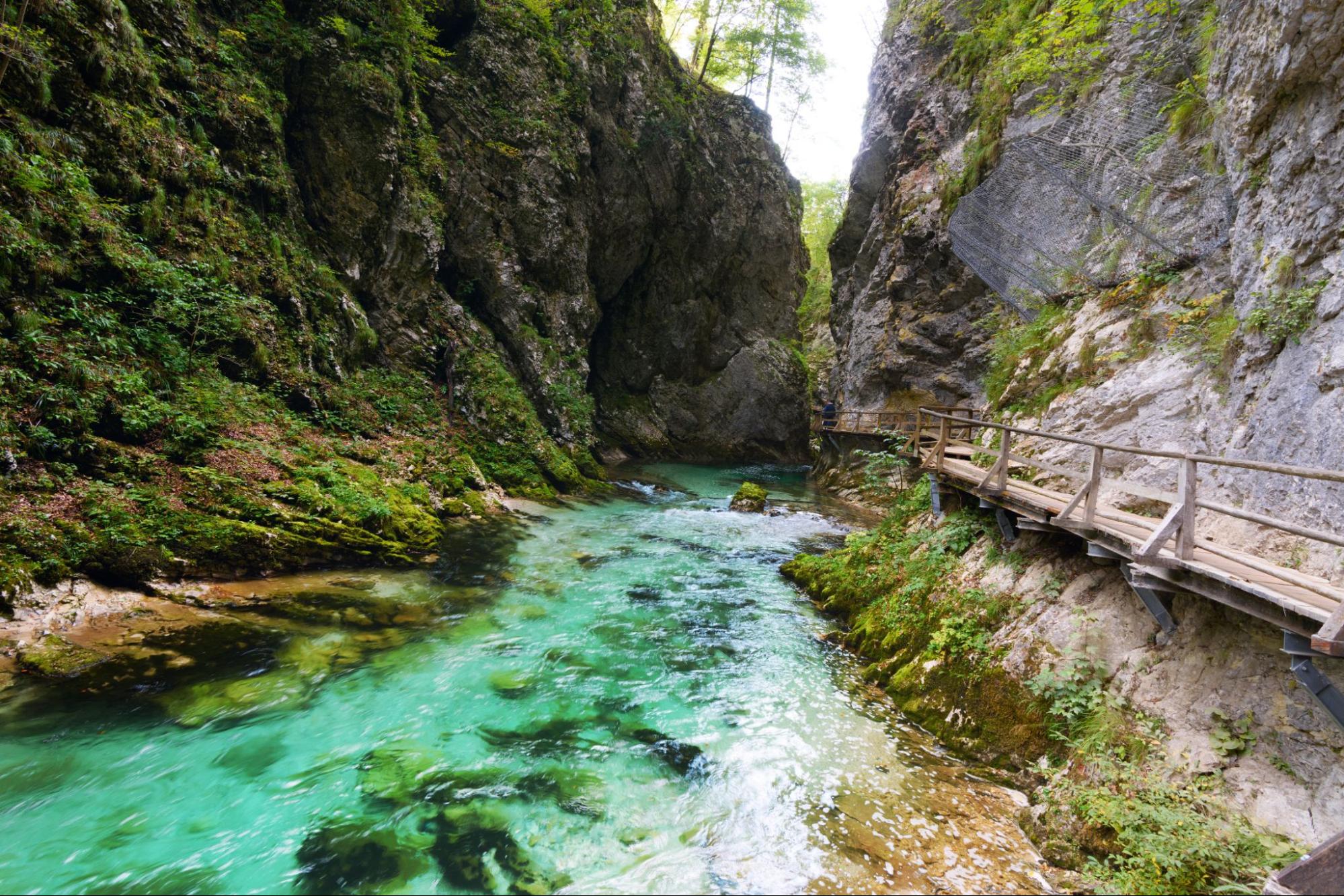
A trail that leads to nature’s most cherished treasures. Photo by GarkushaArt - stock.adobe.com
Starting point: entrance near Vintgar Gorge (northwest of Lake Bled)
Difficulty: easy to moderate (some uphill sections in Pokljuka Plateau)
Length: 17 kilometres
This is one of the most popular hikes in Triglav National Park and of the best day hikes in Europe. It’s an exciting combination of natural beauty and outdoor activities, such as wildlife spotting. After enjoying the dream-like waterfalls in Vintgar Gorge, make your way towards Pokljuka Plateau, where pristine nature and traditional alpine architecture await. At the end of your journey, sit back and relax with some delicious local dishes, such as strudels and sausages in cosy mountain huts.
16. Omu Peak, Bucegi Mountains, Romania
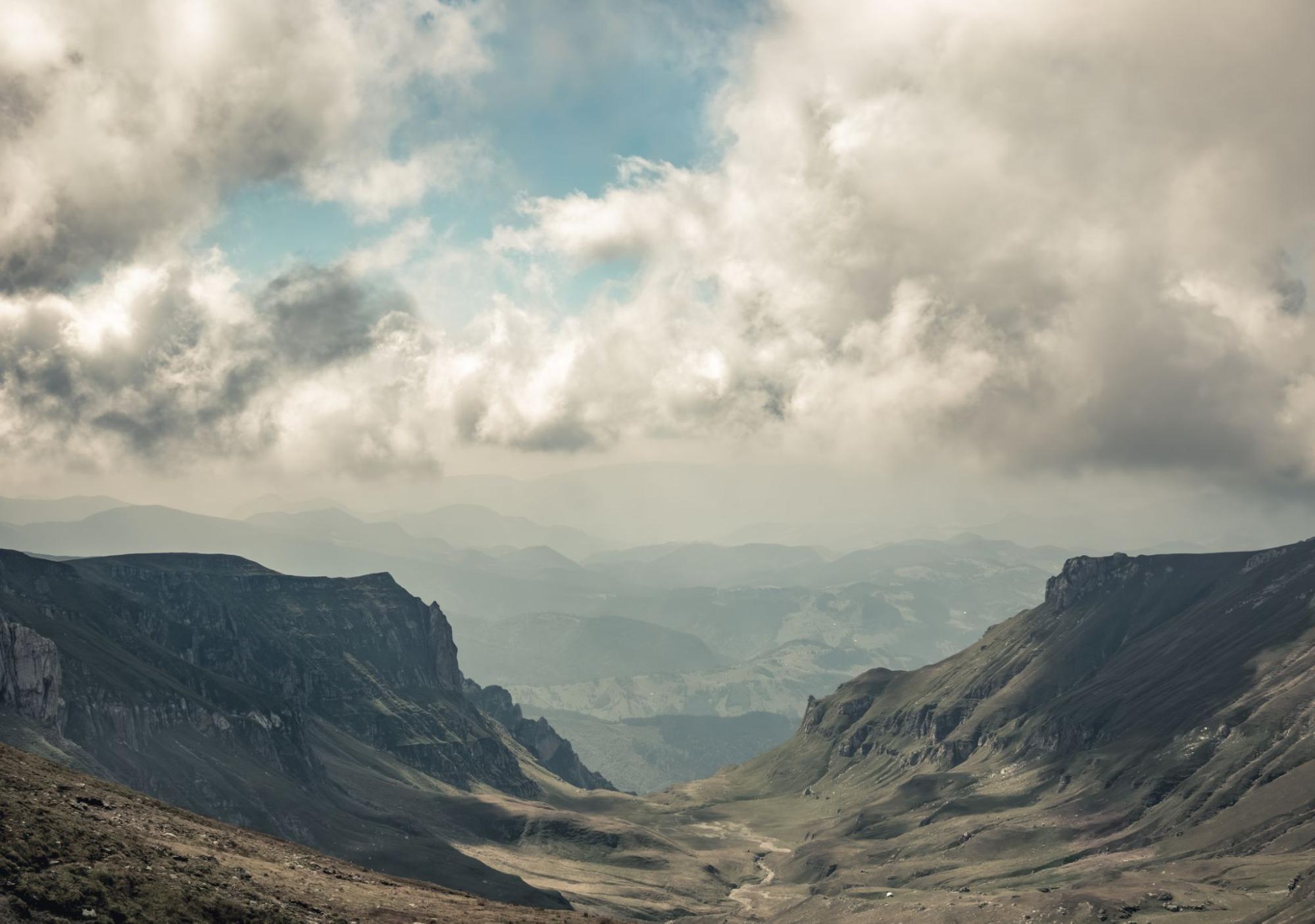
A perfect harmony sung by the rocks of one of Romania’s most stunning peaks. Photo by Cristi on Adobe Stock.
Starting point: Pestera village or Busteni town
Difficulty: moderate to hard
Length: 13 kilometres
Along the trail, you can pass through picturesque landscapes, such as the Babele and the Sphinx rock formations, that will leave you wanting more. Take your journey slow and steady so you don’t scare away the beautiful species of native birds - one of the highlights of the trail. Once you reach the summit, enjoy the view of the Carpathian Range and Bucharest. There’s also an impressive high-altitude hotel if you want to stay overnight.
17. The Great Balaton Trail, Hungary
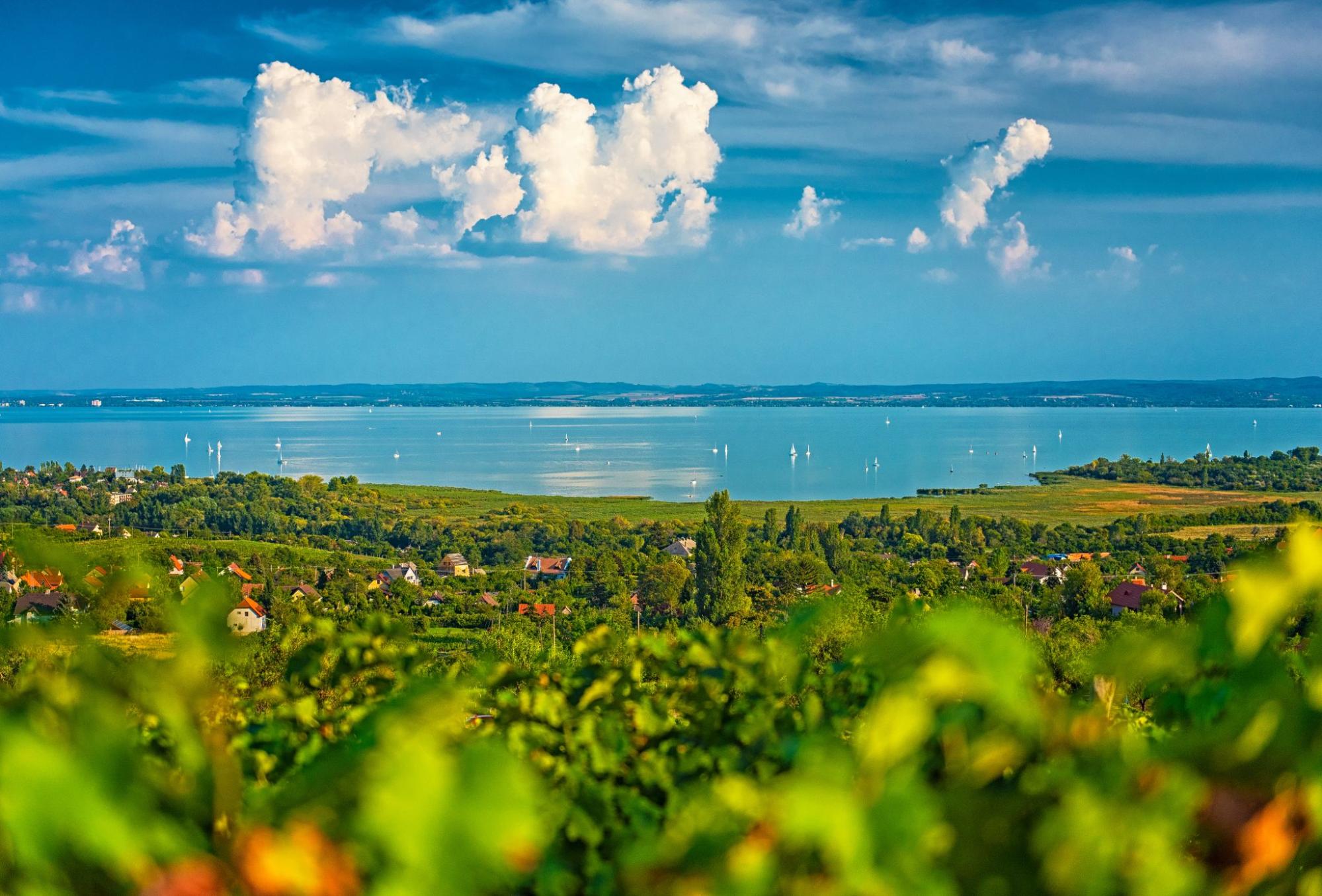
Landscapes so beautiful you’d think they are a fairy tale book’s page. Photo by Horvath Botond on Adobe Stock.
Starting point: Balatonföldvár town (best point for 1 day hike)
Difficulty: easy to hard depending on your section
Length: 200 kilometres in total but plenty of loop sections are about 15 kilometres
The Great Balaton Trail leads you to Lake Balaton, one of the largest lakes in Europe. Along the trail, you will come across aesthetic vineyards and charming little villages with ancient churches and castles. Make sure to stop by the Tihany Peninsula and the 1000-year-old monastery Tihany Abbey. The trail is also known as the stopover spot for migrating birds, so don’t forget to bring your camera and binoculars to watch these beautiful feathery fellows.
18. Grossglockner High Alpine Road, Austria
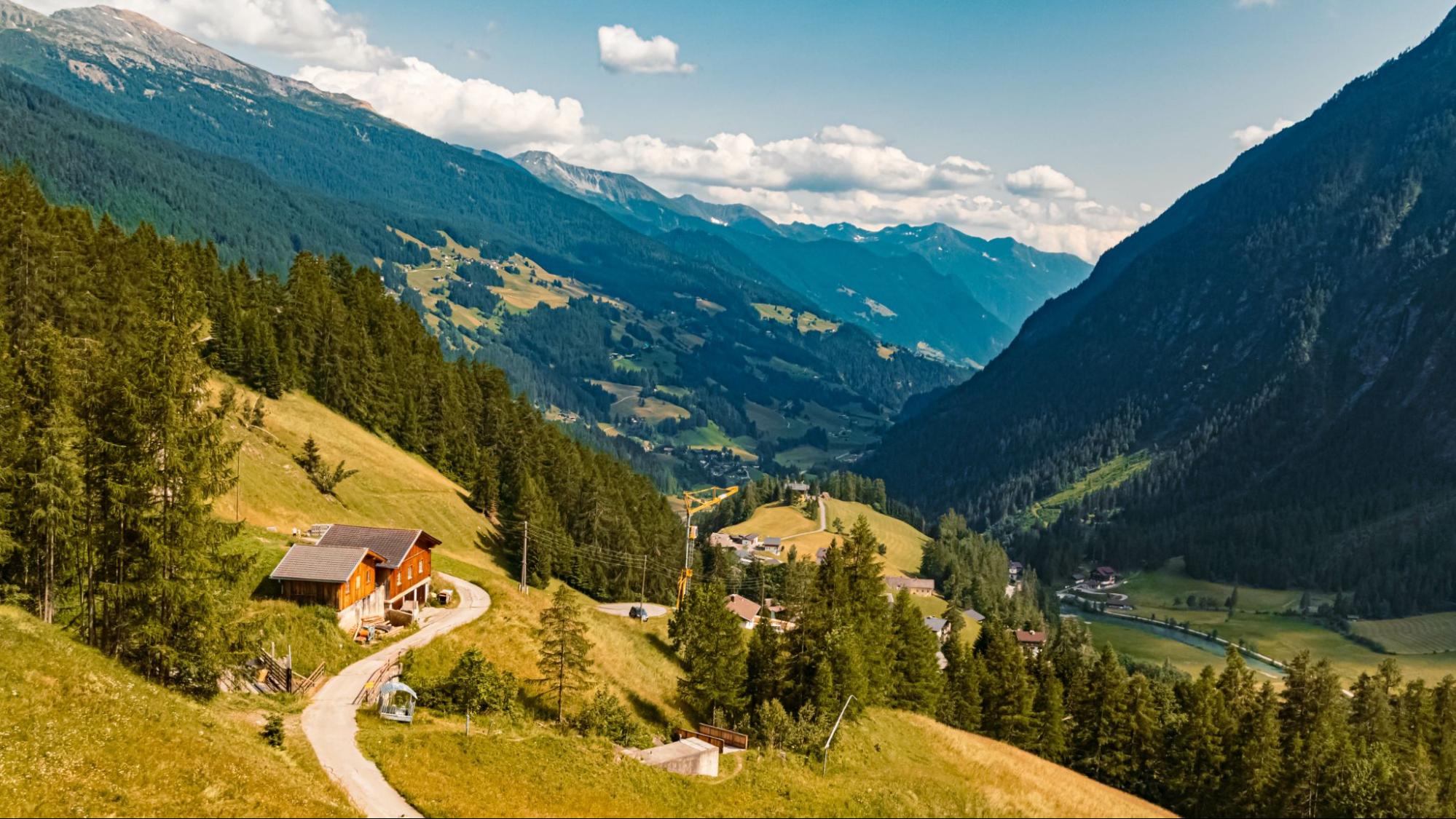
Exploring magnificent scenery and wildlife diversity on the Grossglockner trail. Photo by Martin Erdniss - stock.adobe.com
Starting point: Kaiser-Franz-Josefs-Höhe visitor centre
Difficulty: moderate to hard
Length: 7 kilometres
This trail lets you marvel at Grossglockner, the highest mountain in Austria. You can also visit stunning attractions like the Pasterze Glacier and Edelweißspitze. Keep an eye out for marmots, ibexes and other wildlife on your way. The visitor centre also hosts various exhibitions showcasing the diversity of local fauna and flora and the history of the trail.
19. Eiger Trail, Switzerland
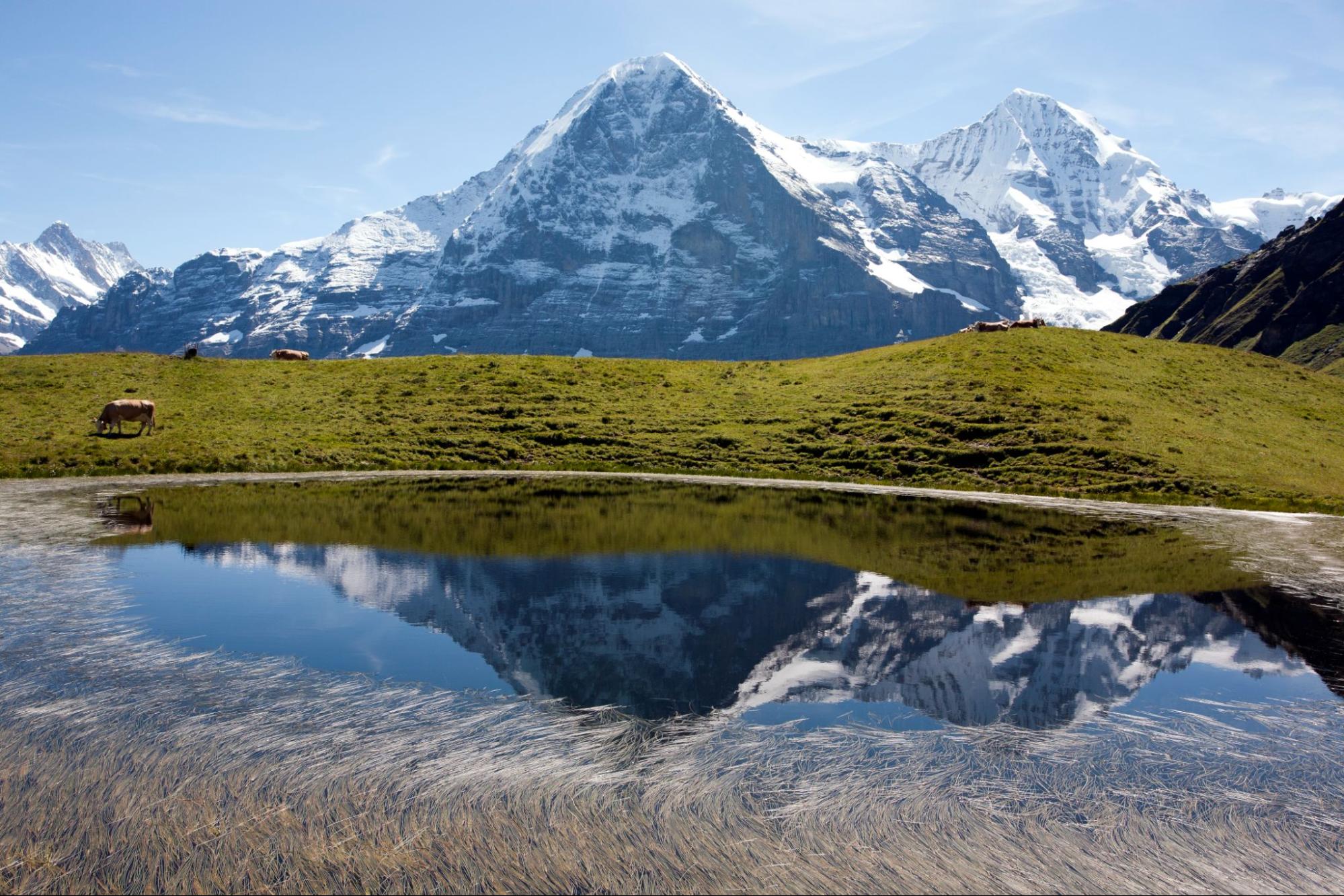
An iconic trail that winds through enchanting landscapes. Kosala Bandara from London, England, CC BY 2.0, via Wikimedia Commons
Starting point: Train ride from Grindelwald to Alpiglen
Difficulty: moderate to hard
Length: 6 kilometres
Though not long, this trail is considered challenging due to some of its steep and exposed sections. But it’s one of the best ways to view the Swiss Alps, a marvel of Switzerland. As you hike along the iconic Eiger North Face, you pass through alpine meadows, glaciers, waterfalls and rugged cliffs. At the Monchsjoch Hut, you can take a break before continuing to hike back to Grindelwald.
The Best Day Hike In The UK
The UK’s landscapes are diverse, with rolling hills, beautiful coastlines and rugged mountains. This diversity is a wonderful gift to hike lovers as you experience a rich range of terrains in a relatively small area. Another perk of the region is that you can hike year-round.
What is the best time to hike in the UK?
- Spring (March to May): warm temperature, longer daylight hours
- Summer (June to August): hotter but good for hiking. Popular trails are crowded, so you can pick options that are higher in the mountains.
- Autumn (September to November): mild weather makes for a perfect hiking trip.
- Winter (December to February): it’s cold, but the scenery is breathtaking and peaceful. It’s an ideal condition for expert hikers to challenge themselves.
20. Scafell Pike, Lake District
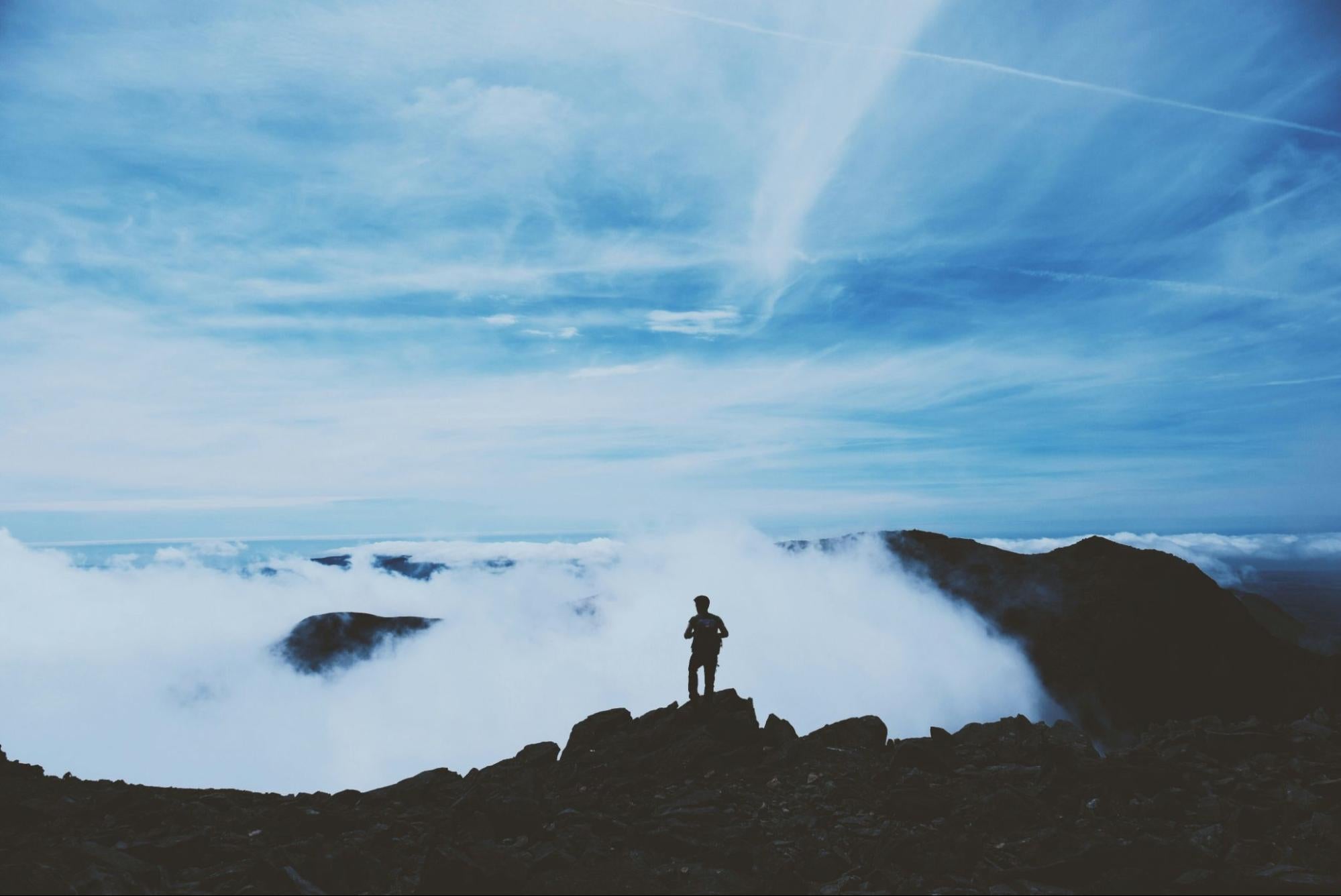
Be in awe of England’s highest peak. Photo by Dan Cook on Unsplash.
Starting point: Wasdale Head village
Difficulty: moderate to hard
Length: 12-16 kilometres depending on route
Scafell Pike is the highest mountain in England, so you can get the idea that the view from the summit is unparalleled. While hiking to the summit, you will pass iconic landmarks such as Lingmell Col., Broad Crag and the famous Lord’s Rake. You may also come across some unique wildlife, like the red squirrels.
21. Ben Navis, Scotland
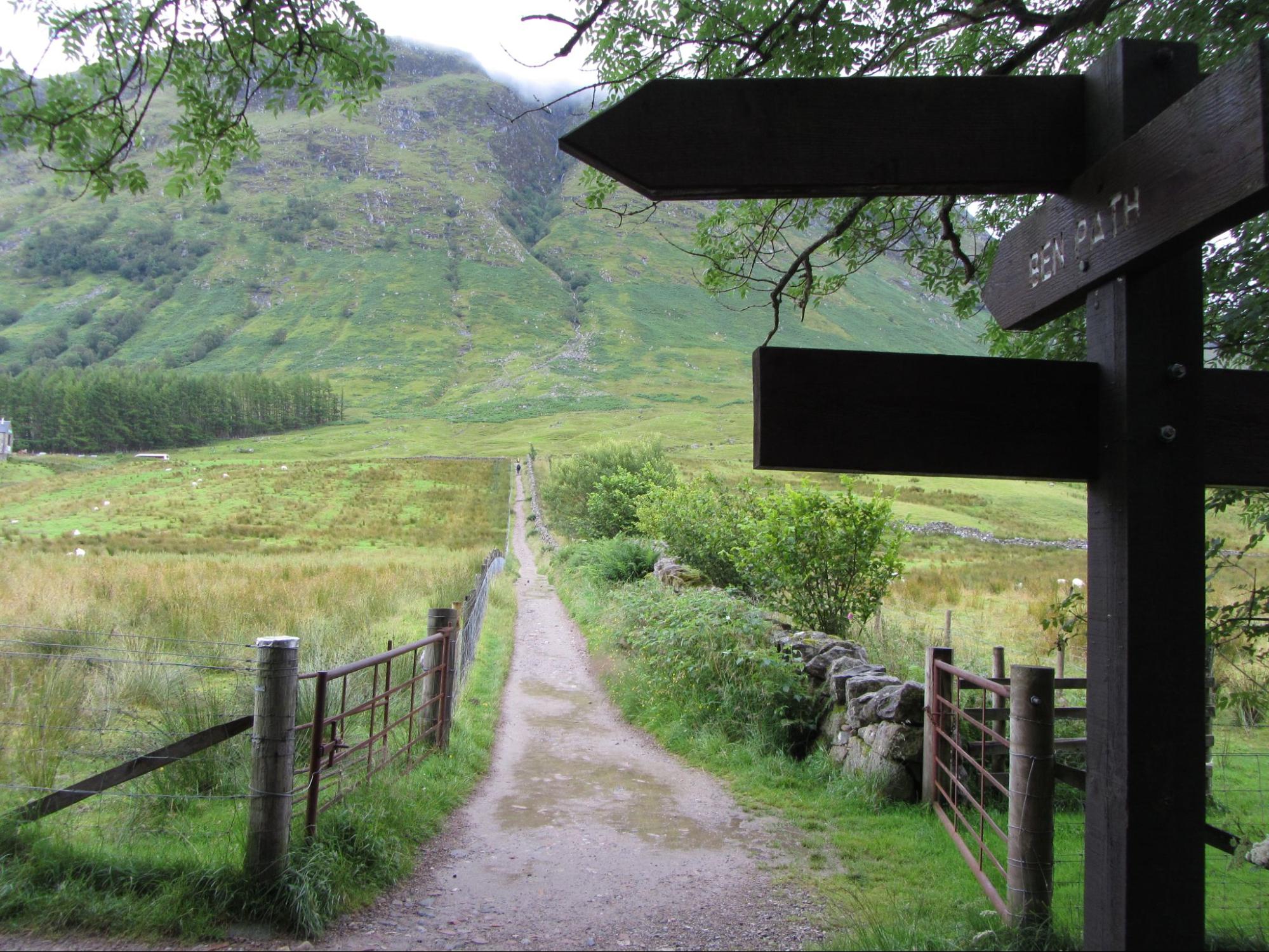
A powerhouse of nature waiting for your wanderlust hearts. Footpath to Ben Nevis by Gareth James, CC BY-SA 2.0, via Wikimedia Commons. Image resized
Starting point: Glen Navis car park
Difficulty: moderate to hard
Length: 17 kilometres
This hike is challenging since Ben Navis is the tallest mountain in the British Isles. But with how beautiful and enchanting the landscapes are, it’s impossible to say the journey is anything less than rewarding. Keep your camera ready when passing the majestic Steall Falls and Red Burn stream. On a clear day, you can get a panoramic view of the Scottish Highlands on the summit.
22. Fairy Pools, Scotland
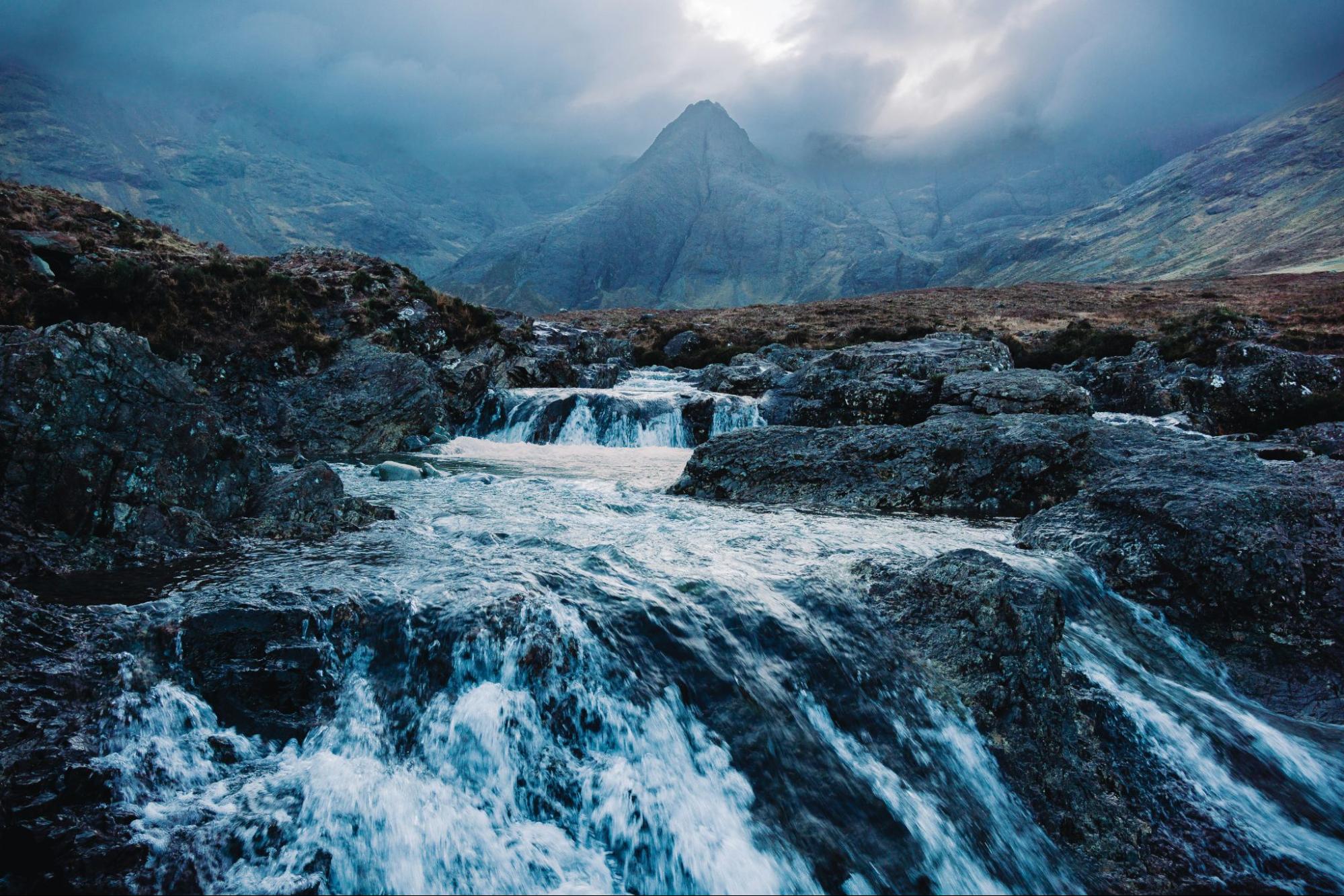
The wonders of Scottish Highlands you won’t believe are real. Photo by Sam Quek on Unsplash
Starting point: Glenbrittle
Difficulty: easy to moderate
Length: 2.4 kilometres
The Fairy Pools hiking trail is like no other. The magical scenery - turquoise blue natural pools and cascades against the mountainous backdrop - can lure you into a calm and serene state of mind. You will be able to feel your body and your soul exhale. Since the trail is short, you can extend your trip by exploring nearby areas.
23. Snowdon, Wales
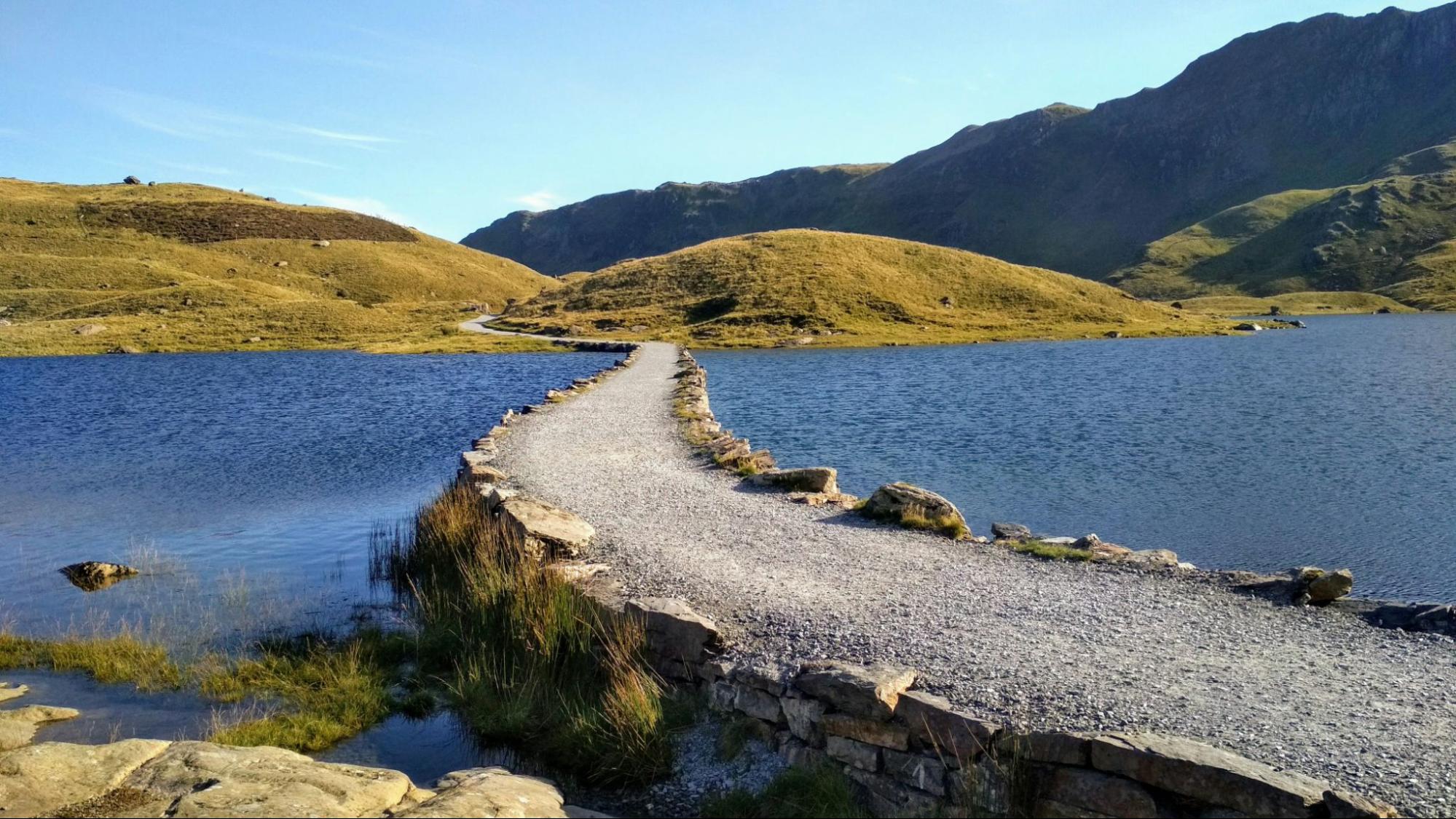
The trails of Snowdon lead you to awe-spiring natural wonders. Photo by Amit Jagnade on Unsplash.
Starting point: Llanberis village
Difficulty: moderate to hard depending on routes
Length: 14-20 kilometres
Snowdon’s two most popular day-hike trails are the Llanberis Path or the Pyg Track. The former is easier and more accessible to inexperienced hikers as it has well-marked paths and a gradual incline. The Pyg Track is for those who are up for a physical challenge. But what these two trails have in common is the natural beauty that unfolds itself in front of our very eyes. From the ancient forests to dramatic cliff formations, they all make for a rewarding experience.
24. The Jurassic Coast, England
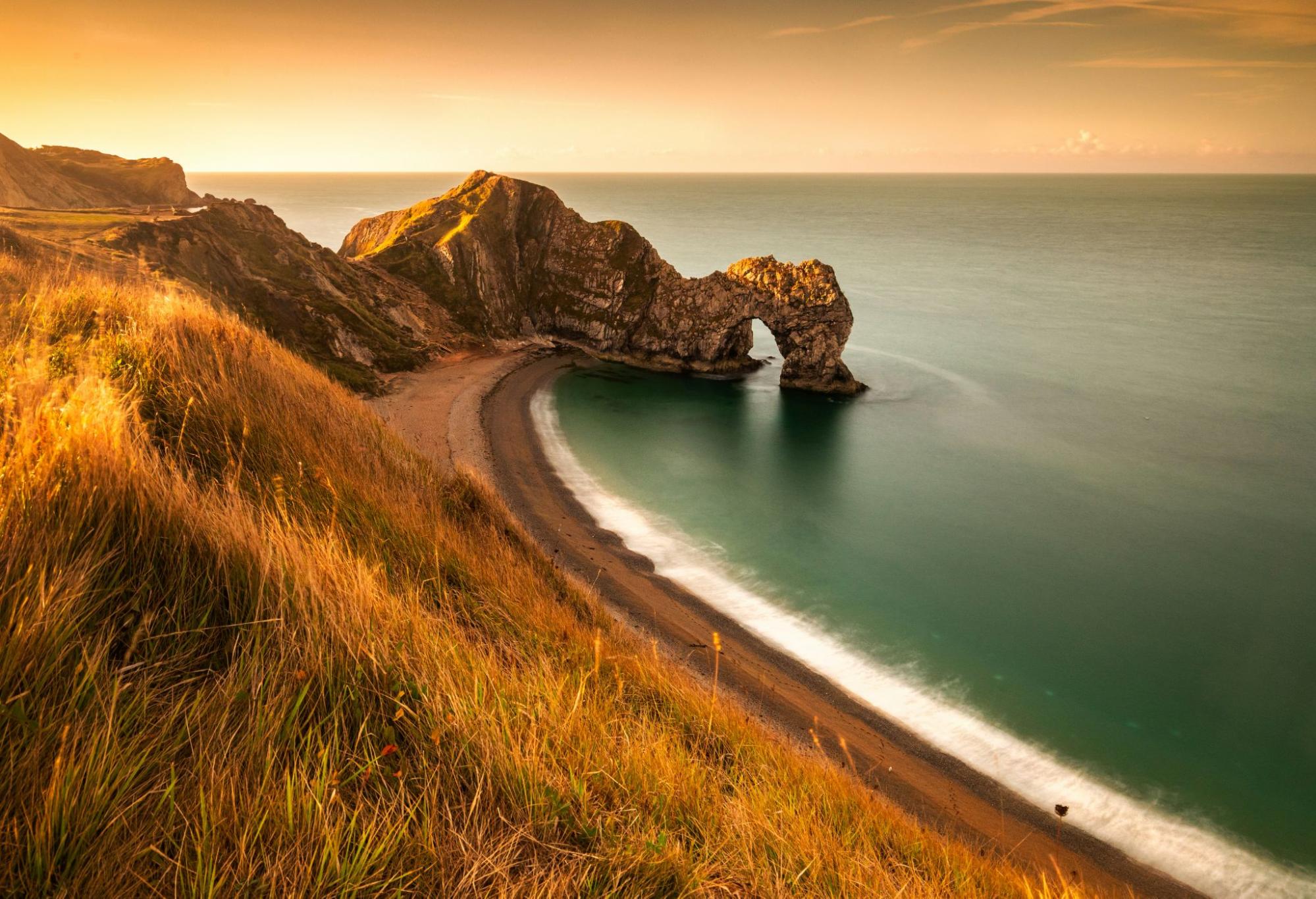
Explore age-old scenic wonders and bring home fossil souvenirs. Photo by Chris Meads on Unsplash.
Starting point: Lyme Regis, Dorset or other points depending on your route
Difficulty: easy to moderate depending on routes
Length: 153 kilometres, but for a day hike, you can pick short sections
Like its name entails, you’re in for an adventure back to the prehistoric era. This UNESCO World Heritage hiking trail boasts golden beaches, million-year-old cliff formations and rocky coves. It’s also home to diverse wildlife, such as seabirds, dolphins and seals. If you’re lucky, you can come across some fossils to bring home as souvenirs. Some sections of the trail are easy and accessible, so they can be a great choice if you’re travelling with children.
25. Cliffs of Moher Coastal Walk, Ireland
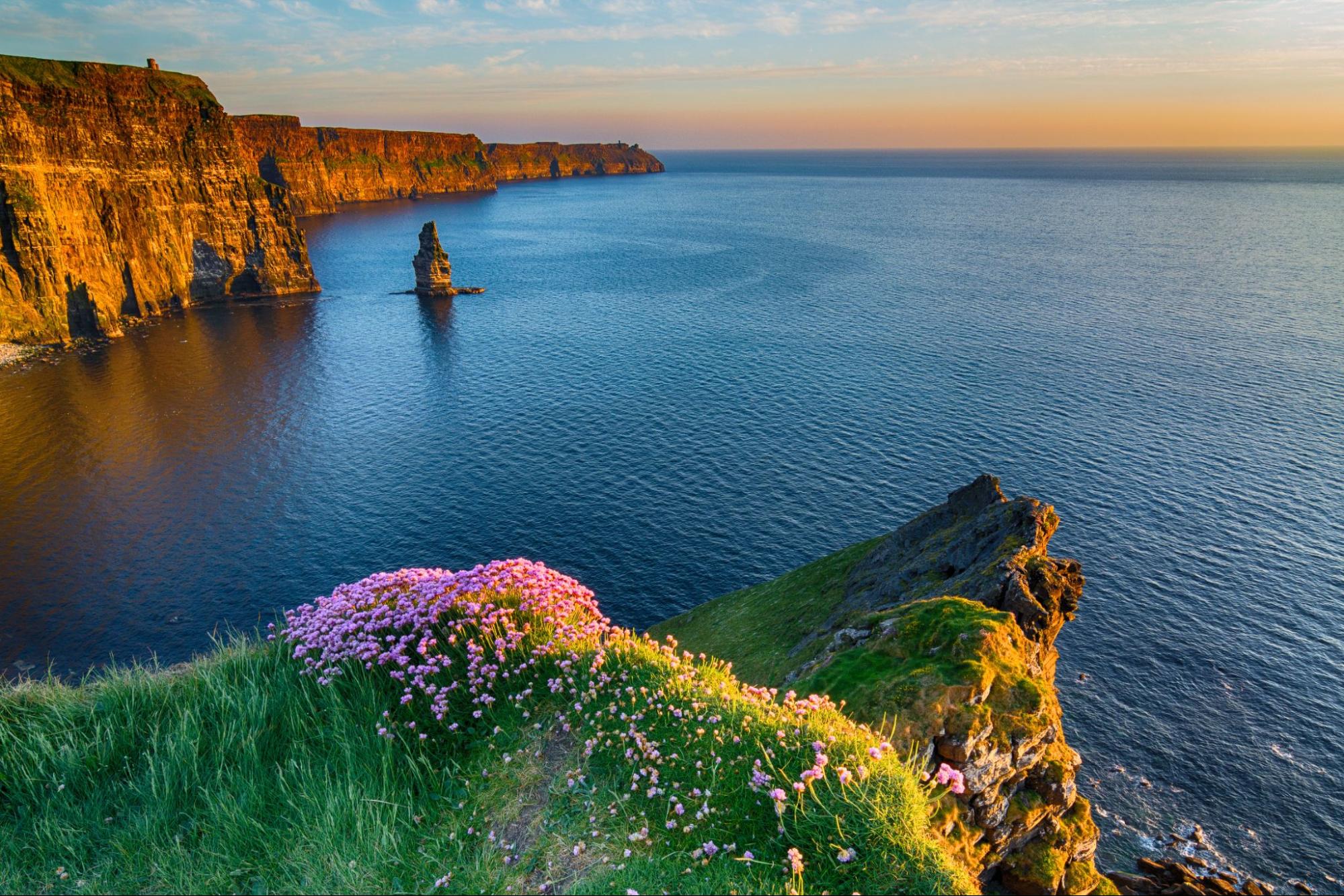
Get your camera ready to capture the best nature has to offer on the Cliffs of Moher. Photo by UTBP - stock.adobe.com
Starting point: Cliffs of Moher visitor centre
Difficulty: moderate
Length: 20 kilometres
Fancy a birdwatch? Cliffs of Moher is a fantastic place to be. It’s the home to one of the world’s largest seabird colonies, including puffins, razorbills, and guillemots. Don’t forget to bring your camera and binoculars! Besides, the coastline is dotted with coves and small sandy beaches. Another highlight is the 1835-built O’Brien Tower, which offers a more panoramic view of the surrounding landscapes.
The Best Day Hike In Europe - Know Before You Go
Still don’t know which best day hike in Europe to choose for your next dream vacation? Or, you’ve picked your destination but are still in need of some crucial advice about hiking? Well, let us help you.
What Is The Best Country In Europe To See Wildlife?
Europe’s wildlife can rival that of tropical paradises like Costa Rica or Panama. Hiking is the best way to observe wildlife up close (but not too close, though!). Here is the best day hike in Europe you can go to see the amazing wildlife of Europe:
- Morskie Oko, Poland: to see the bison
- Grossglockner High Alpine Road, Austria: to see the ibexes and marmots
- Cliffs of Moher Coastal Walk, Ireland: to see puffins, razorbills and guillemots
- Scafell Pike, Lake District: to see the red squirrels
- The Jurassic Coast, England: to see dolphins, seals and seabirds
- Julma-Ölkky Hiking Trail, Hossa, Finland: to see the mooses.
Best Easy Day Hike In Europe For Beginners?
Hiking is not just an “expert-only” kind of hobby some people tend to frame it as. In fact, anyone with good preparation and careful planning can add hiking to their travel checklist. The key is to pick an appropriate trail with beginner-friendly terrains and a suitable distance. Here are some easy trails in Europe:
- Cinque Terre, Italy: the five villages sound more intimidating than they really are.
- Sentier du Littoral, French Riviera: though long, this trail’s terrain remains relatively even, and the paths are well-marked.
- Fairy Pools, Scotland: it’s short and easy. With proper footwear, beginners can take on the journey.
- Pulpit Rock, Norway: it’s not recommended for first-timers, but this trail is relatively accessible enough for beginners with a few trips of experience beforehand.
It’s important to pack the right gear and use the right equipment for hiking. Also, you should assess your fitness level carefully before hiking. Keep in mind that a trip is only good and fun if it’s safe!
How Do You Prepare For A Hike?
Prepping for a hike includes several steps. Some of the most crucial ones are what to pack and how to do so efficiently. If you’re new to the world of hiking:
First, decide which backpack suits your trip the most
Your backpack is going to be your trusted companion on a day hiking trip. So it’s best to bring one that is made for outdoor adventure but also suitable for regular travel needs, such as strolling around towns or going on public transport.
Look for a backpack with these qualities:
- Padded shoulder straps and back panel
- Spacious enough for your belongings (30-40L)
- Suits your trip’s length
- Durable and water-proof
- Has a good number of compartments
- (Preferably) Works well with packing cubes
- Minimal and versatile in design to suit all purposes (if you like).
Our recommendation is CabinZero’s Adventure line backpacks. The 32L-sized backpack is perfect for short hikes, and its big sister, the 42L, is a great choice for longer and possibly multi-day walks.
Second, make a packing list
Categorise your belongings into two different categories - essentials and non-essentials. Essentials are things that can ruin your trip if you forget them; non-essentials are vice versa. For essentials, consider using packing techniques such as the 5-4-3-2-1 packing to make a checklist. Depending on your trip duration and travel needs, add or deduct items.
Third, use the right packing techniques
Sure, no one is going to scold you for just cramping everything into your backpack. But, oh my, won’t it help a ton if you stay organised instead!
It saves you from a lot of common travel hassles like forgetting your charger, mixing up your leaked toiletries with clean clothes, and spending hours digging for your passport at the airport with a long line of people behind you.
Here’s what you can do:
- Use packing cubes to keep items separated
- Roll, instead of folding to avoid wrinkles and taking advantage of tight space
- Pack what you need last in your back first. For example, don’t lay your pyjamas on top of your hiking boots if you’re going to hike as soon as you arrive.
Last, But Not Least, Enjoy Yourself And Take It Easy
To enjoy your favourite best-day hike in Europe to the max, it’s important to enjoy the progress of preparing for it as well.
If you find this article useful, feel free to leave us a comment or reach out to us via our social media. We jump with joy whenever we hear from you lovely globetrotters!
Nguyen Tran Gia Khanh




Laisser un commentaire